APUSH Period 5 Key Terms, AP US History: Period 5: 1844-1877
1/200
There's no tags or description
Looks like no tags are added yet.
Name | Mastery | Learn | Test | Matching | Spaced |
|---|
No study sessions yet.
201 Terms
Manifest Destiny
A notion held by a nineteenth-century Americans that the United States was destined to rule the continent, from the Atlantic the Pacific.
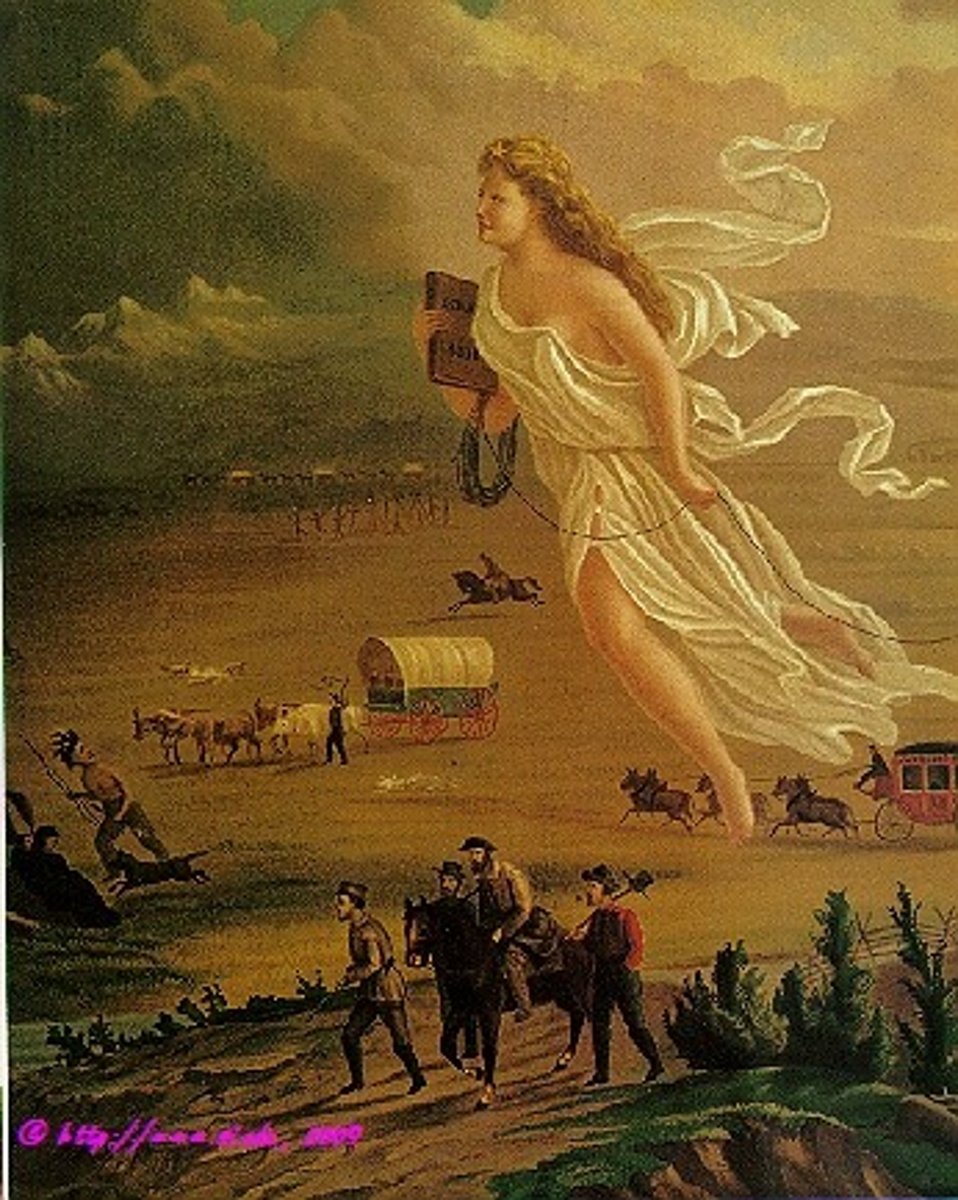
Texas Annexation
1845. Originally refused in 1837, as the U.S. Government believed that the annexation would lead to war with Mexico. Texas remained a sovereign nation. Annexed via a joint resolution through Congress, supported by President-elect Polk, and approved in 1845. Land from the Republic of Texas later became parts of NM, CO, OK, KS, and WY.
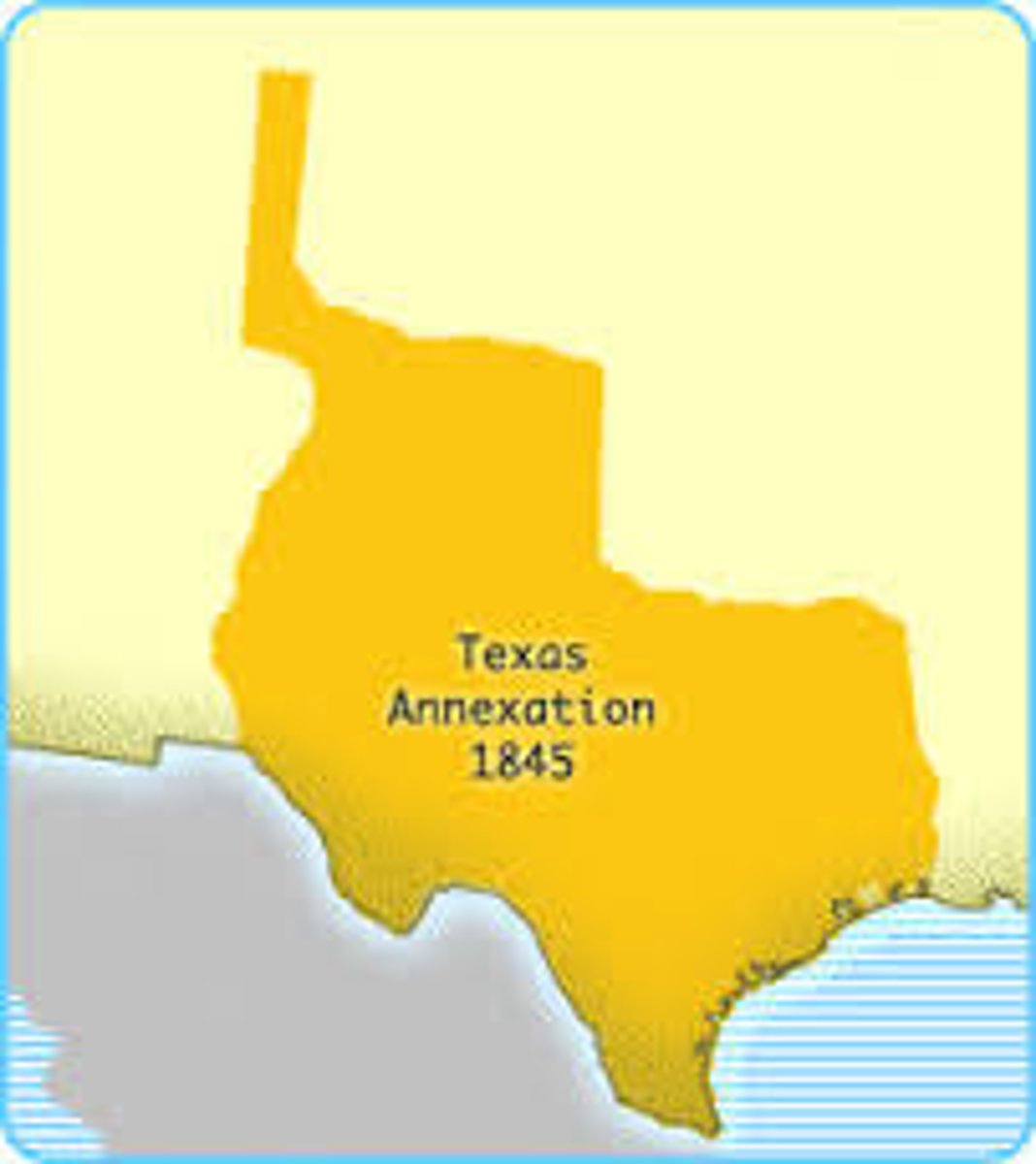
Fifty Four Forty or Fight
The phrase used in James K Polk's 1844 presidential election dealing with the Oregon Territory Dispute.
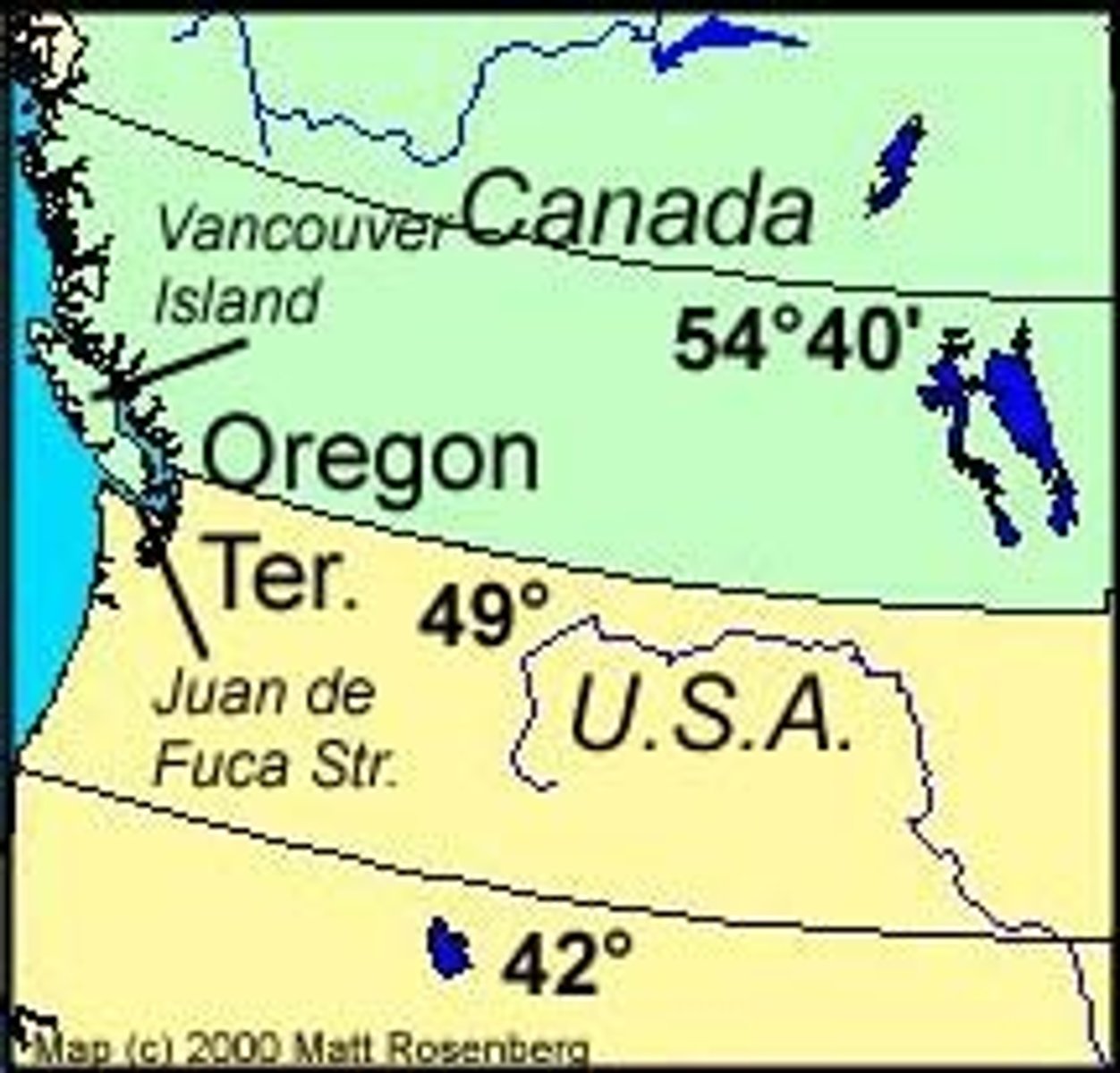
Oregon Trail
2000 mile long path along which thousands of Americans journeyed to the Willamette Valley in the 1840's.
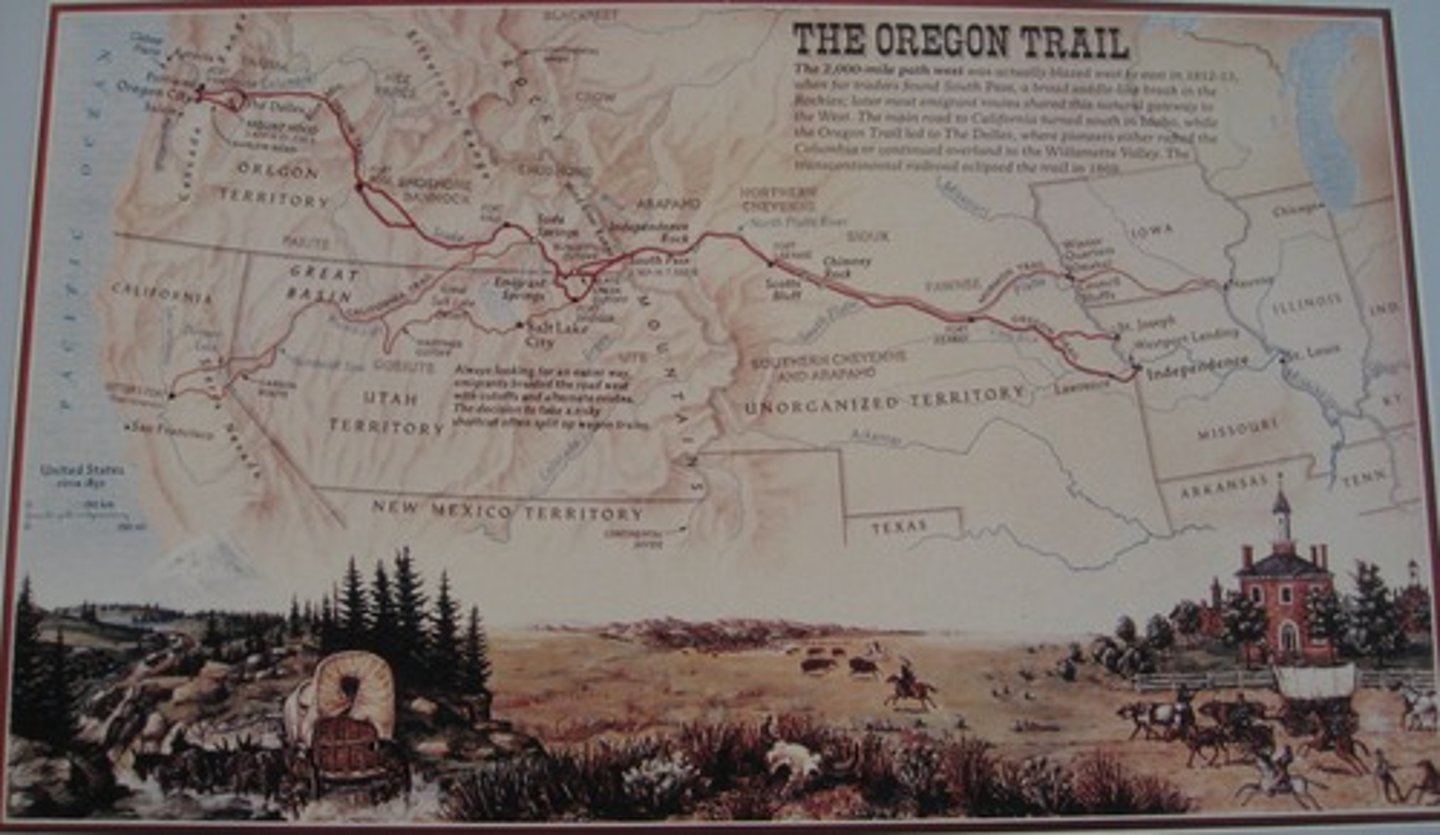
Mountain Men
Fur trappers of the northwest who paved the way for continuous settlement of the great west
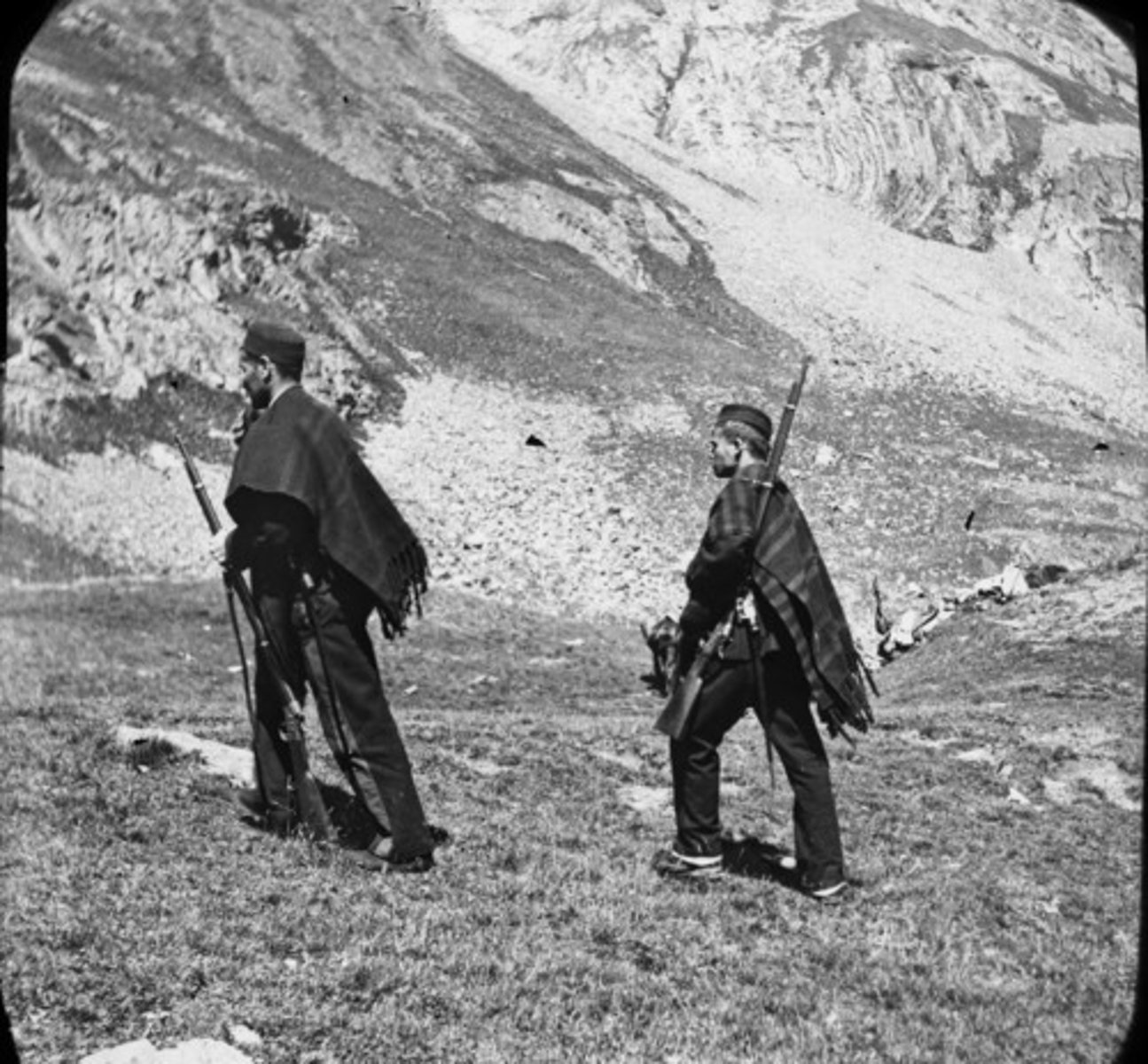
California Gold Rush
1849 (San Francisco 49ers) Gold discovered in California attracted a rush of people all over the country and world to San Francisco; arrival of the Chinese; increased pressure on federal government to establish a stable government

Mexican American War
1846 - 1848 - President Polk declared war on Mexico over the dispute of land in Texas. At the end, American ended up with 55% of Mexico's land.
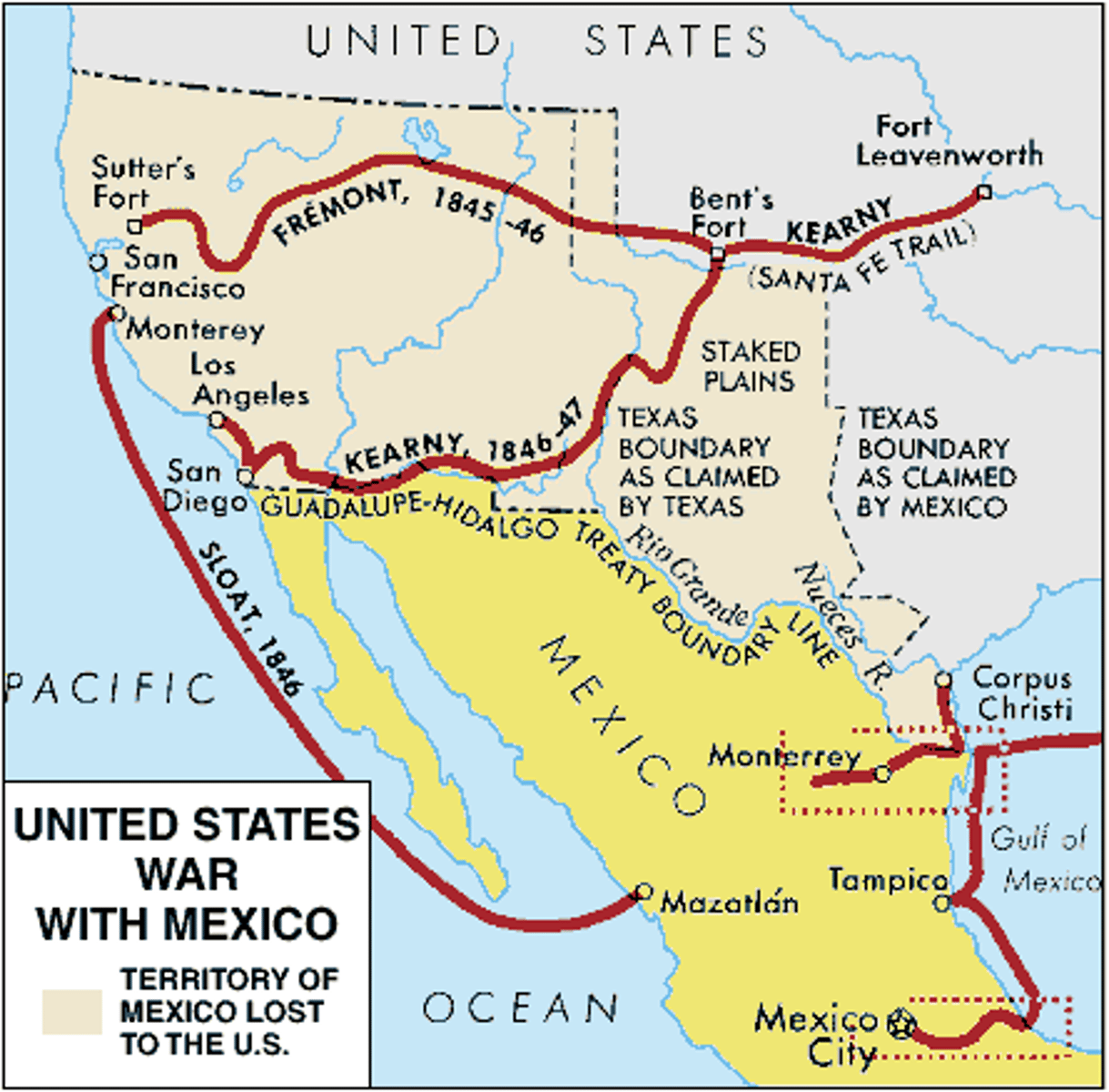
Treaty of Guadalupe Hidalgo
(1848) treaty signed by the U.S. and Mexico that officially ended the Mexican-American War; Mexico had to give up much of its northern territory to the U.S (Mexican Cession); in exchange the U.S. gave Mexico $15 million and said that Mexicans living in the lands of the Mexican Cession would be protected
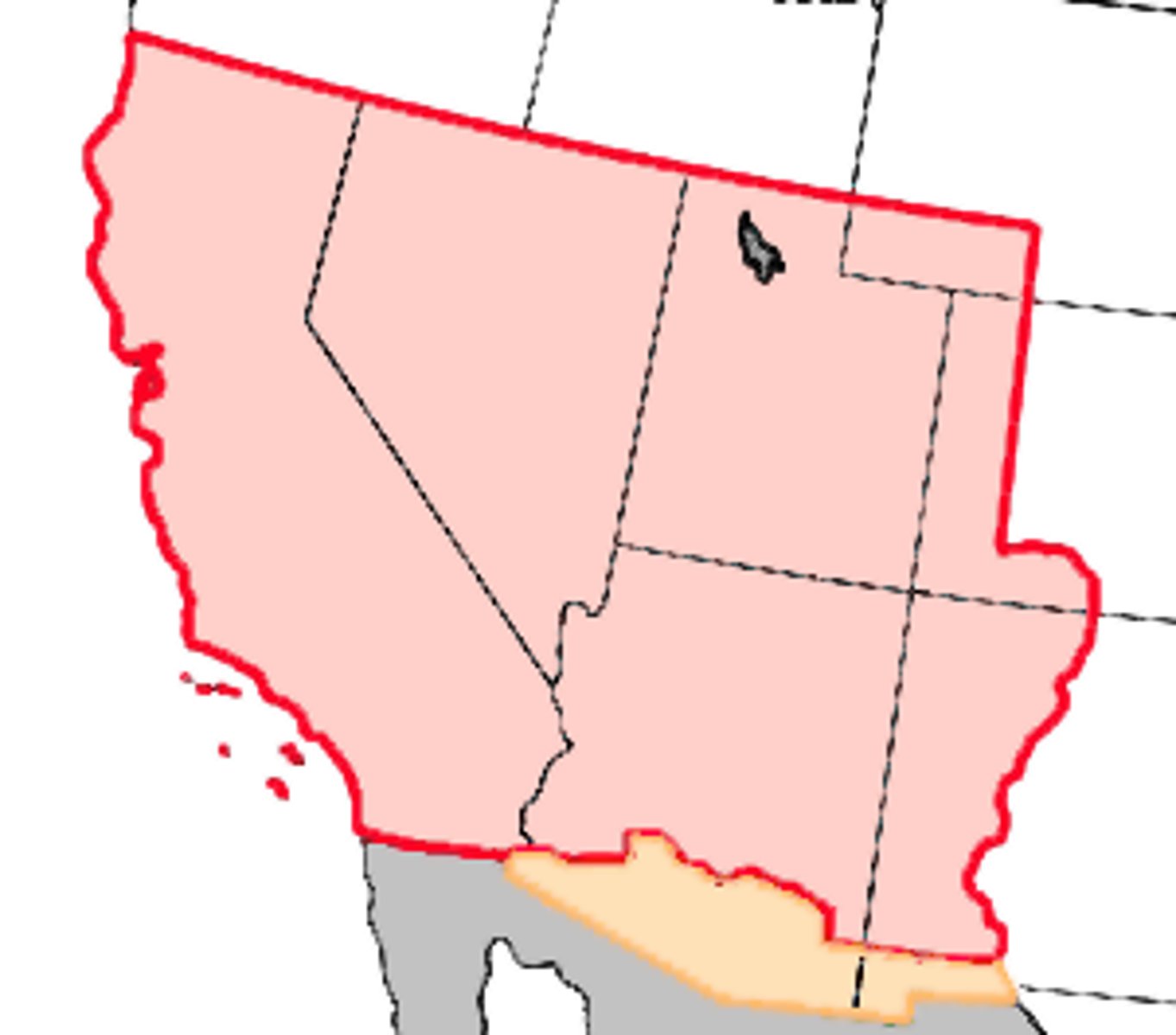
Gadsden Purchase
Agreement w/ Mexico that gave the US parts of present-day New Mexico & Arizona in exchange for $10 million; all but completed the continental expansion envisioned by those who believed in Manifest Destiny.
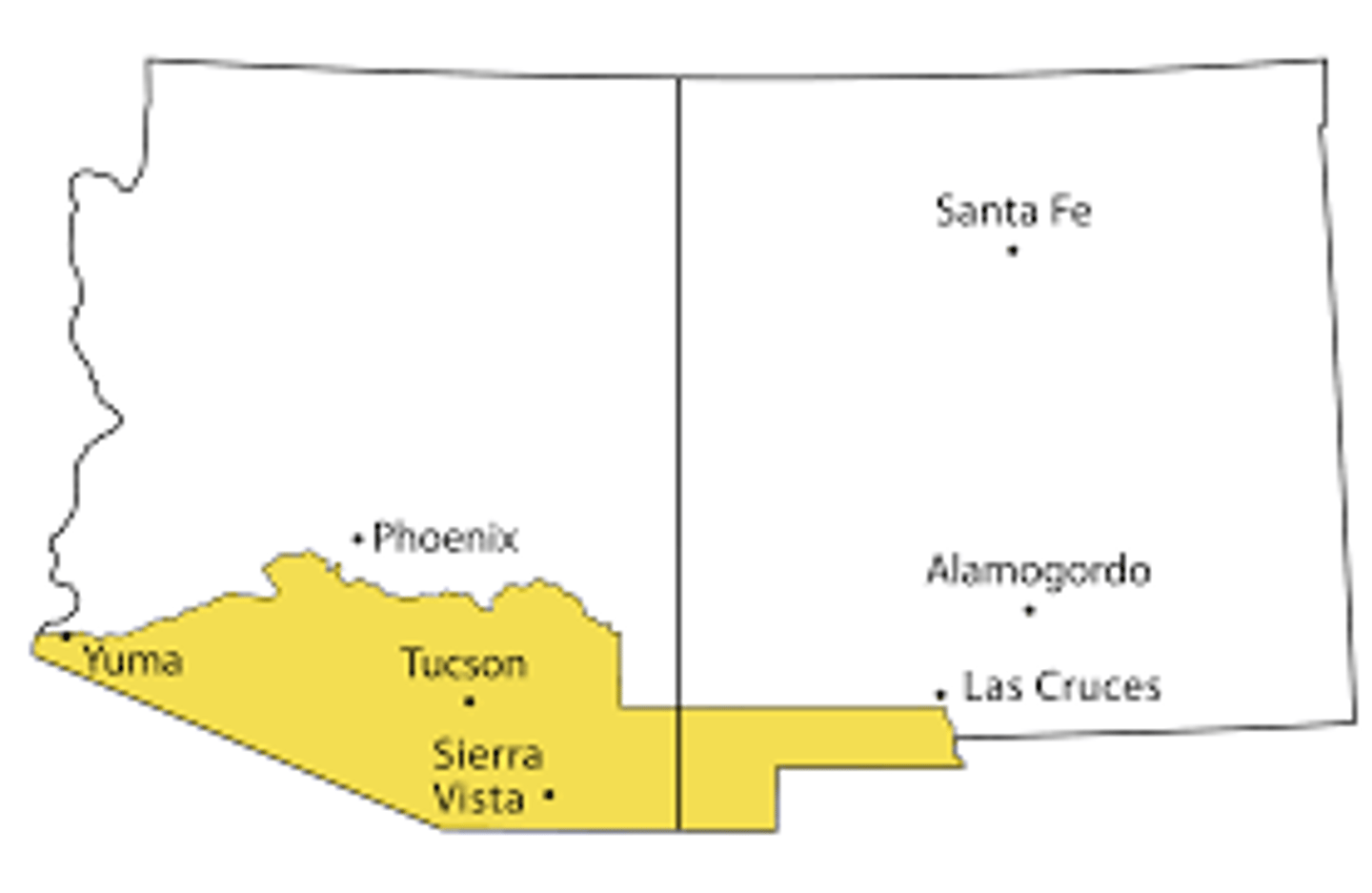
Kansas Nebraska Act
1854 - Created Nebraska and Kansas as states and gave the people in those territories the right to chose to be a free or slave state through popular sovereignty.
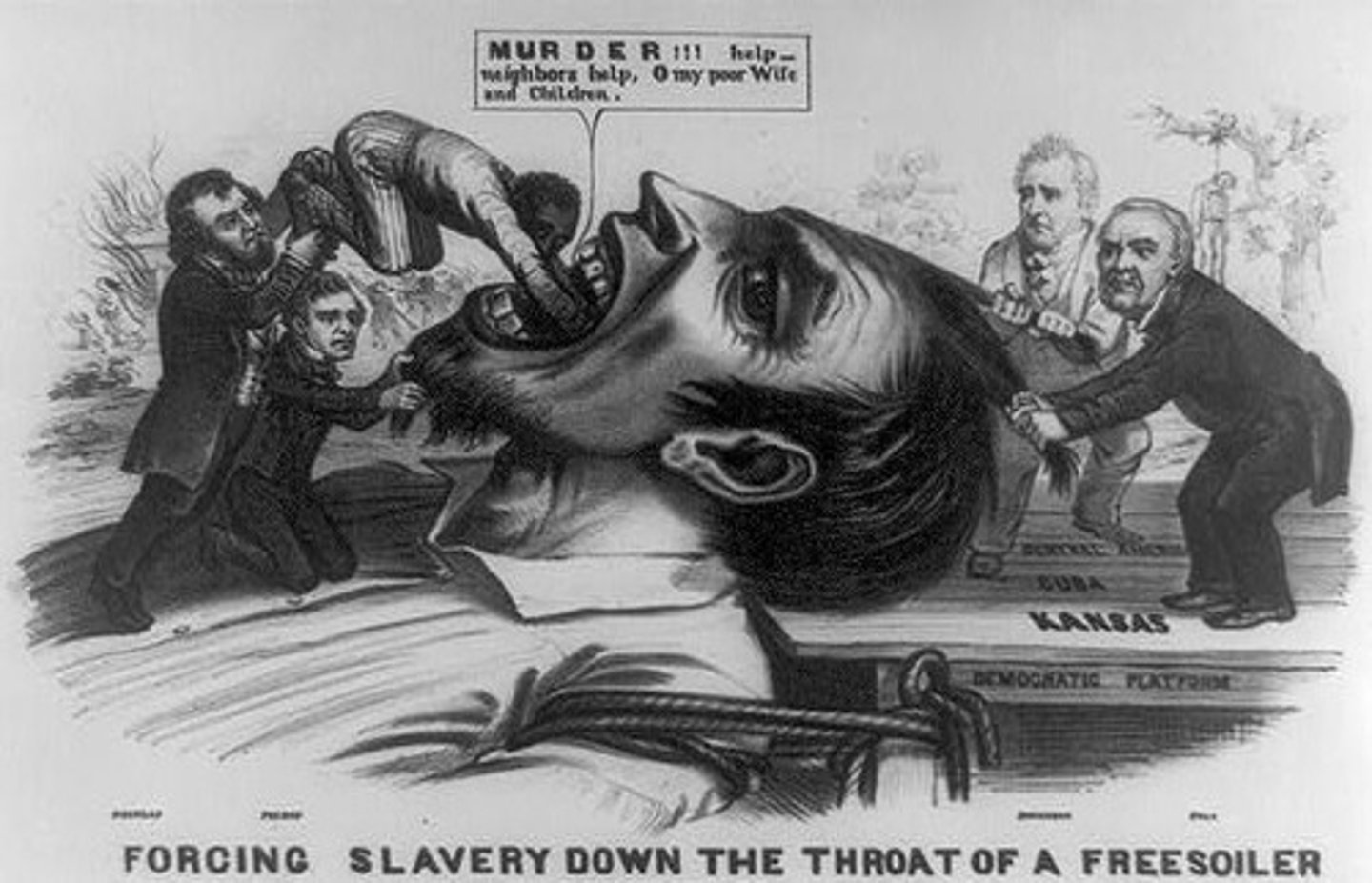
Free "Soiler"
People who opposed expansion of slavery into western territories
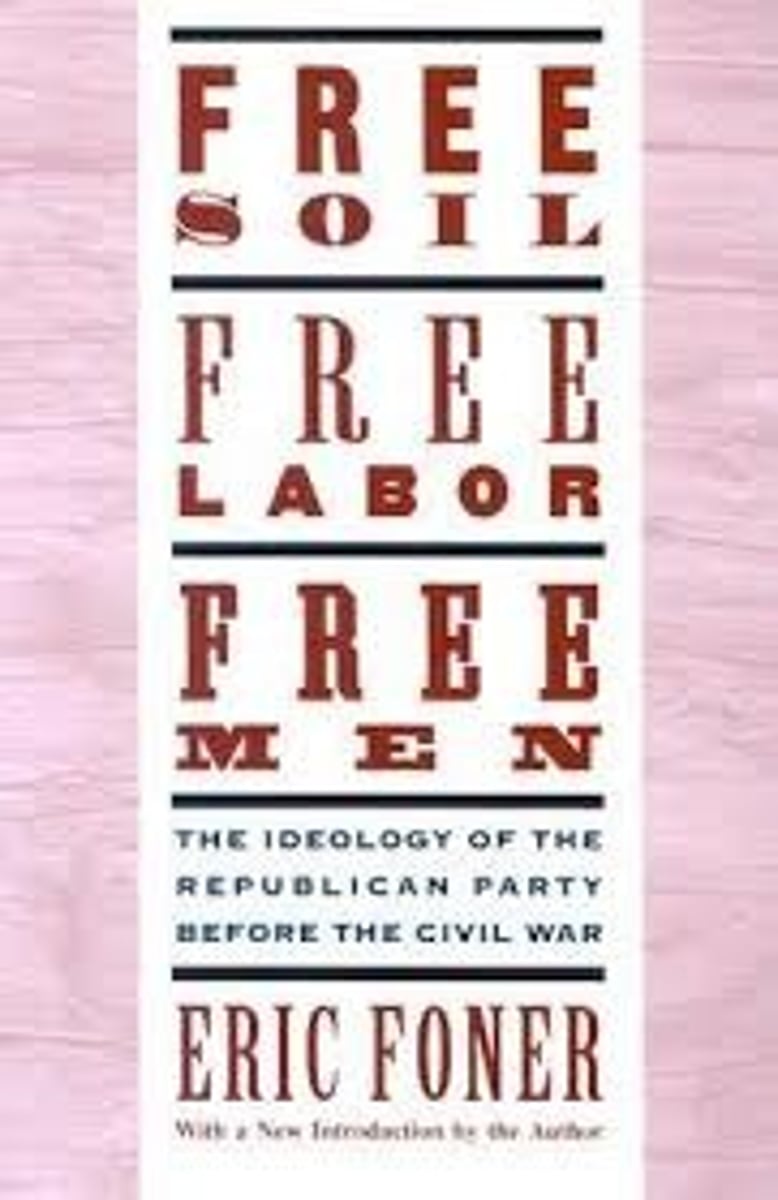
Republican Party
1854 - anti-slavery Whigs and Democrats, Free "Soilers" and reformers from the Northwest met and formed party in order to keep slavery out of the territories
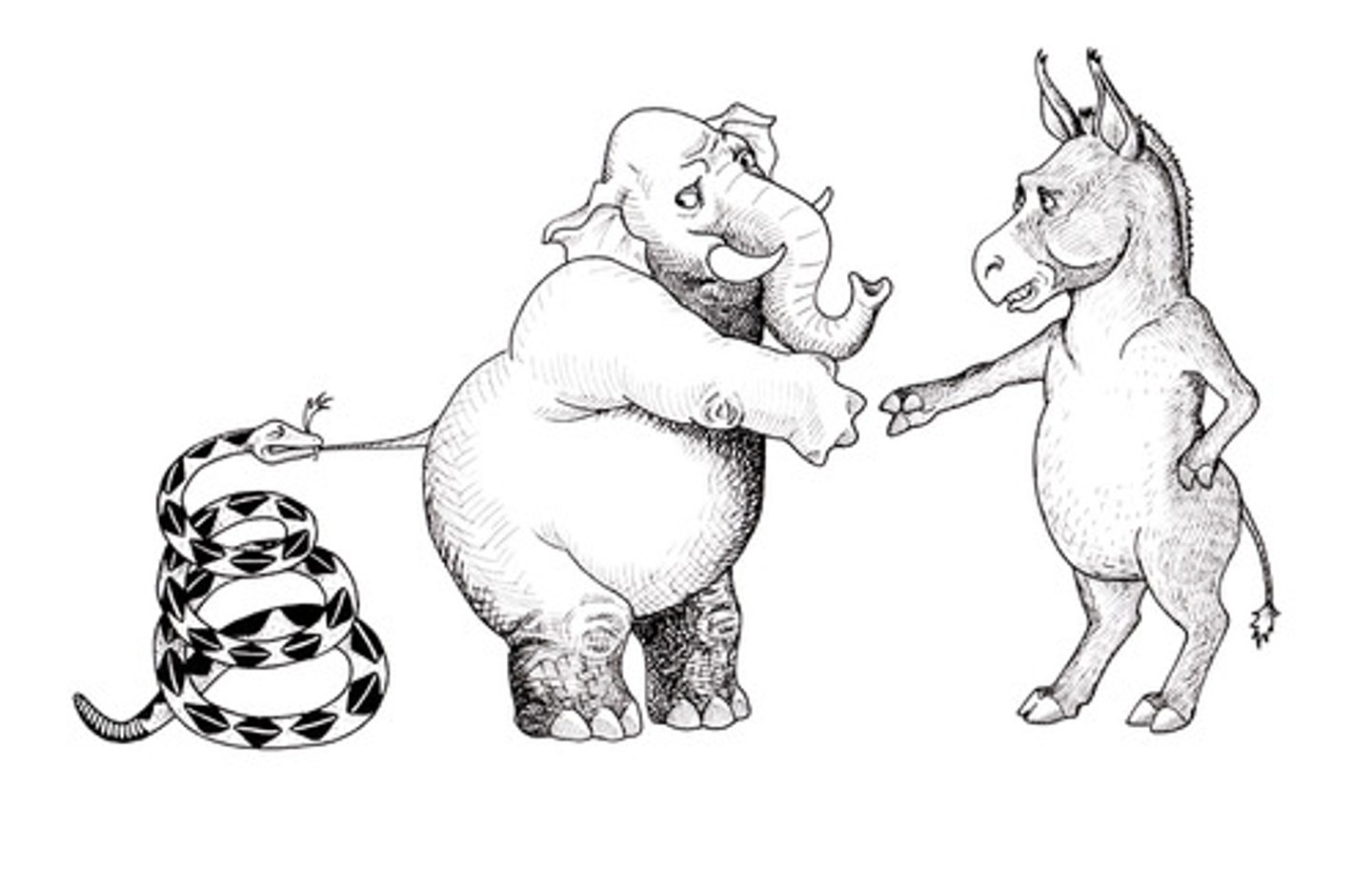
Stephen A Douglas
Senator from Illinois who ran for president against Abraham Lincoln. Wrote the Kansas-Nebraska Act and the Freeport Doctrine
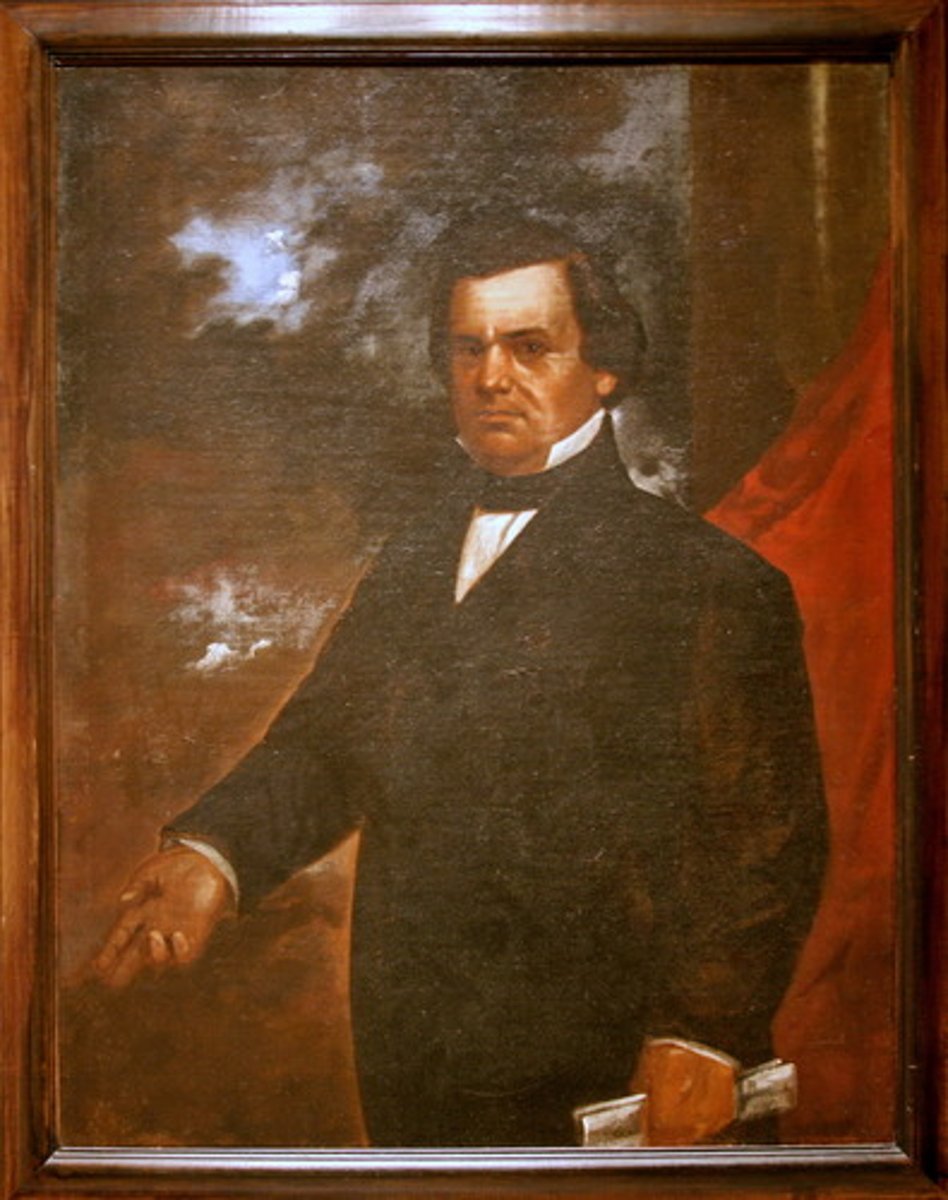
Freeport Doctrine
Idea authored by Stephen Douglas that claimed slavery could only exist when popular sovereignty said so
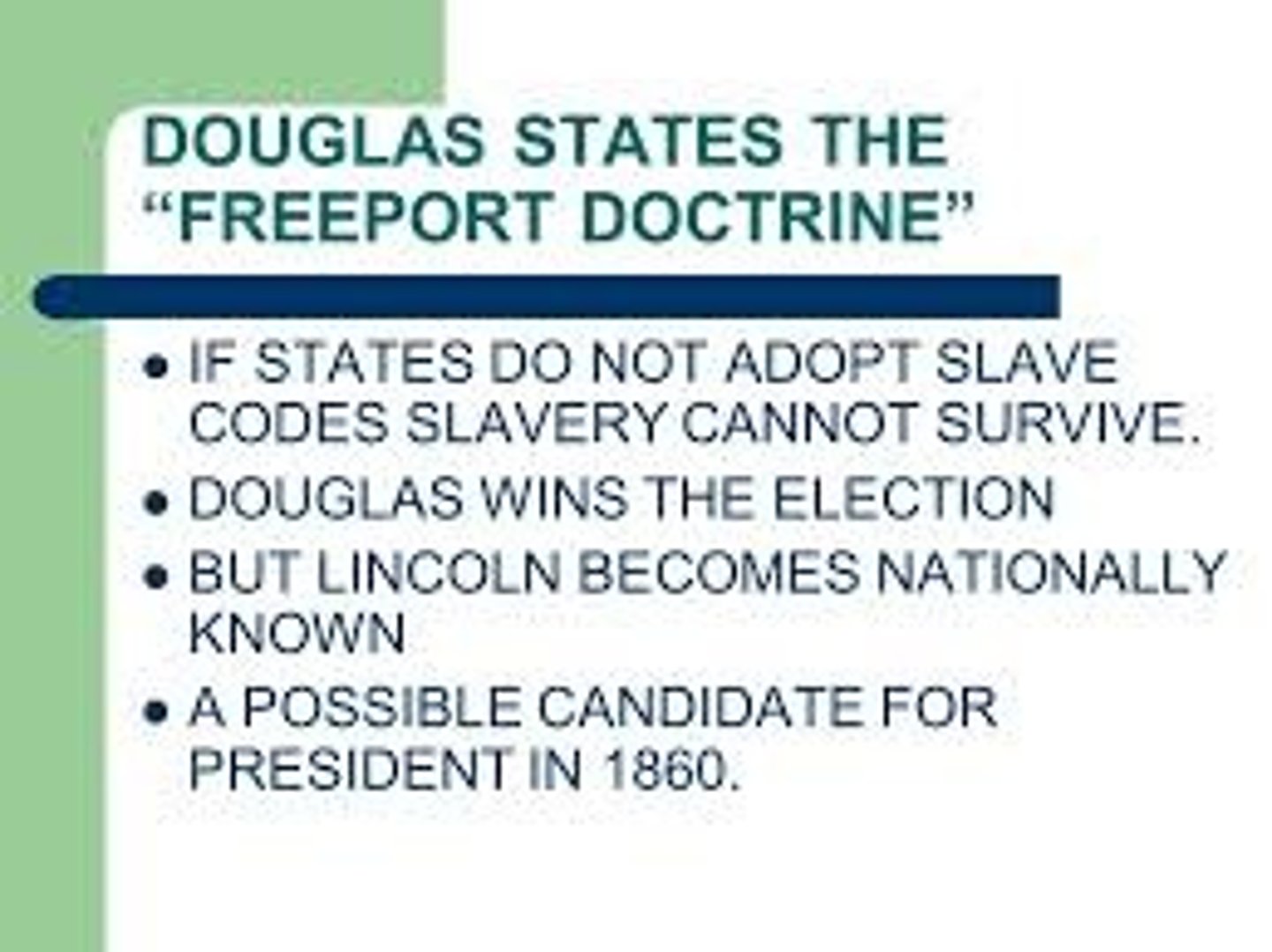
Abraham Lincoln
16th President of the United States saved the Union during the Civil War and emancipated the slaves; was assassinated by Booth (1809-1865)
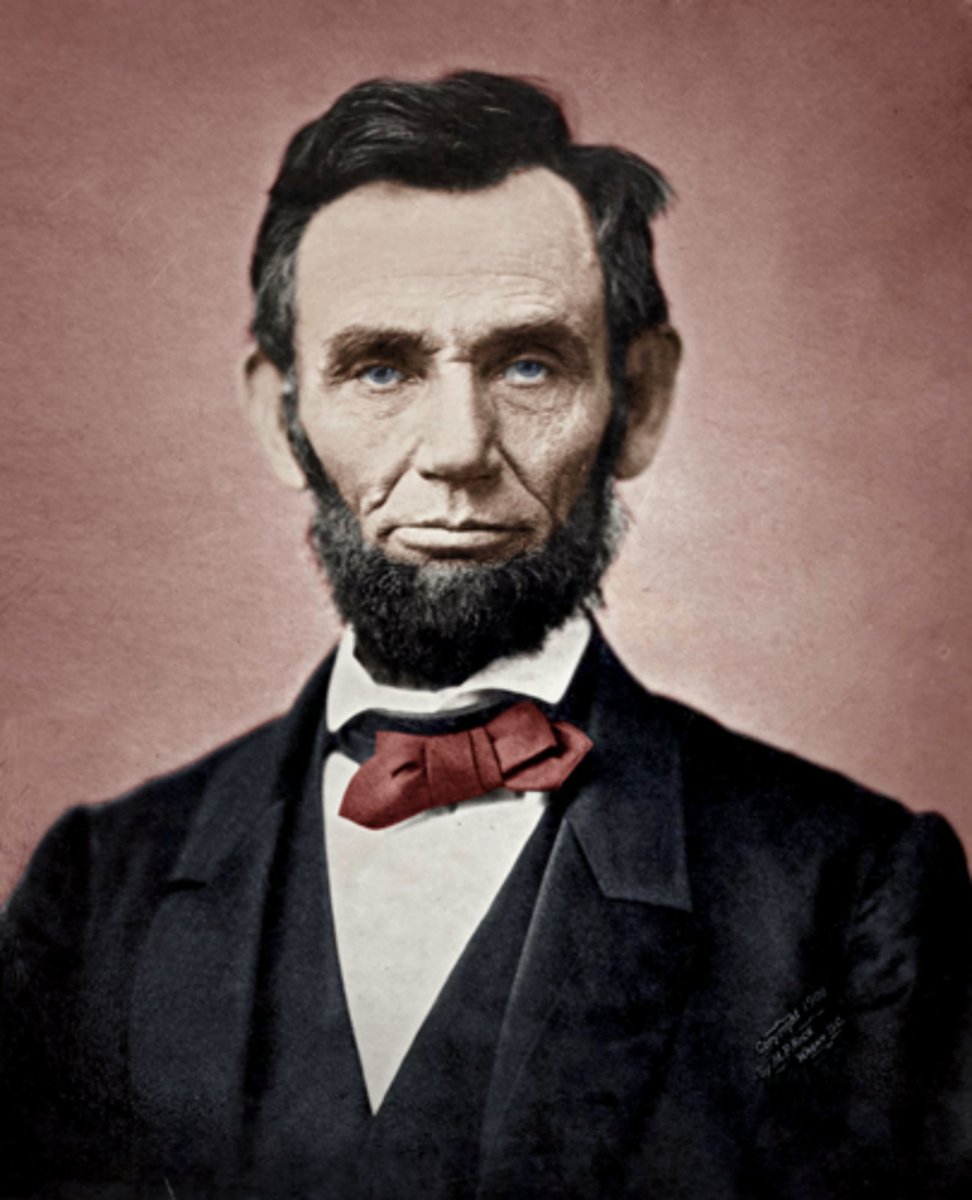
secession
Formal withdrawal of states or regions from a nation
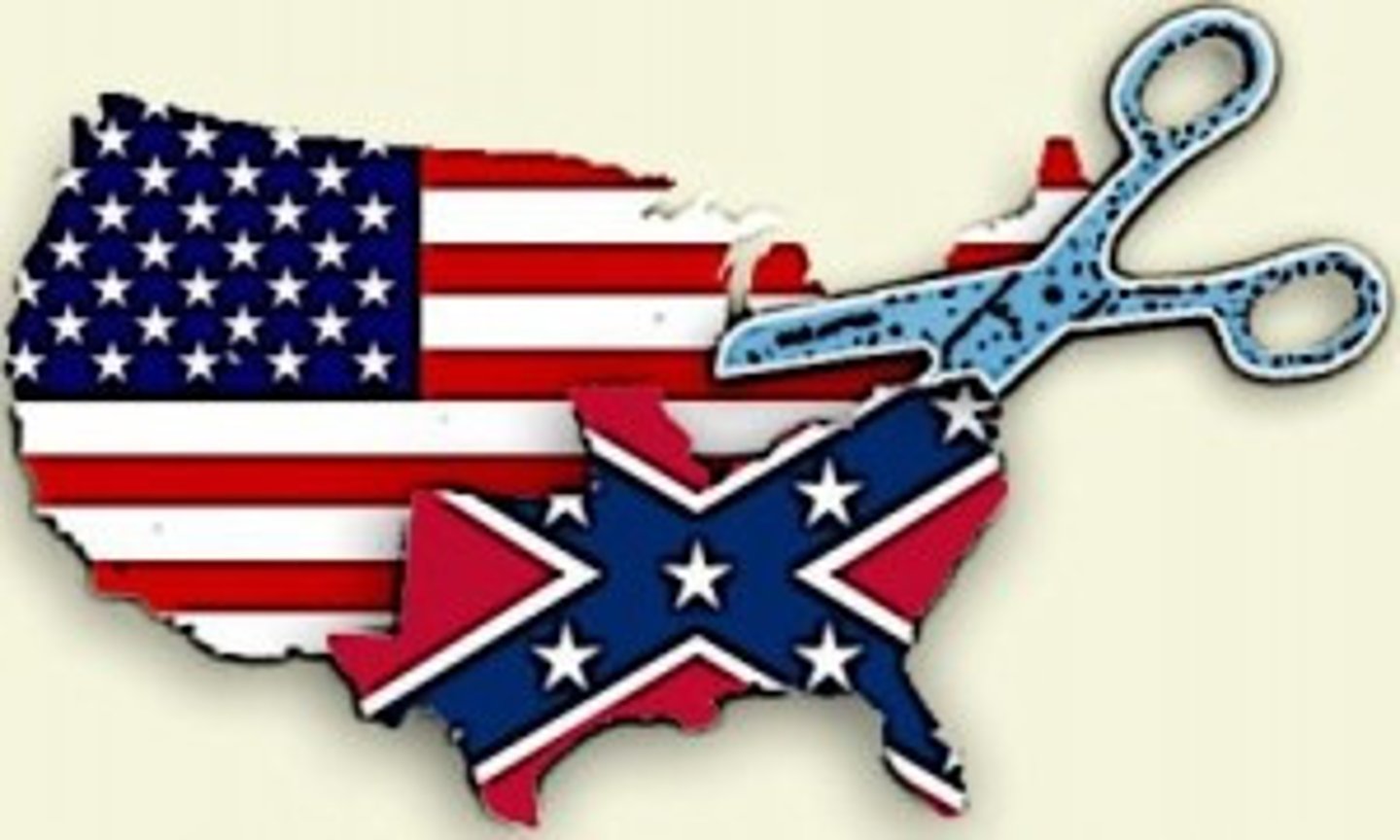
Dred Scott Decision
A Missouri slave sued for his freedom, claiming that his four year stay in the northern portion of the Louisiana Territory made free land by the Missouri Compromise had made him a free man. The U.S, Supreme Court decided he couldn't sue in federal court because he was property, not a citizen.
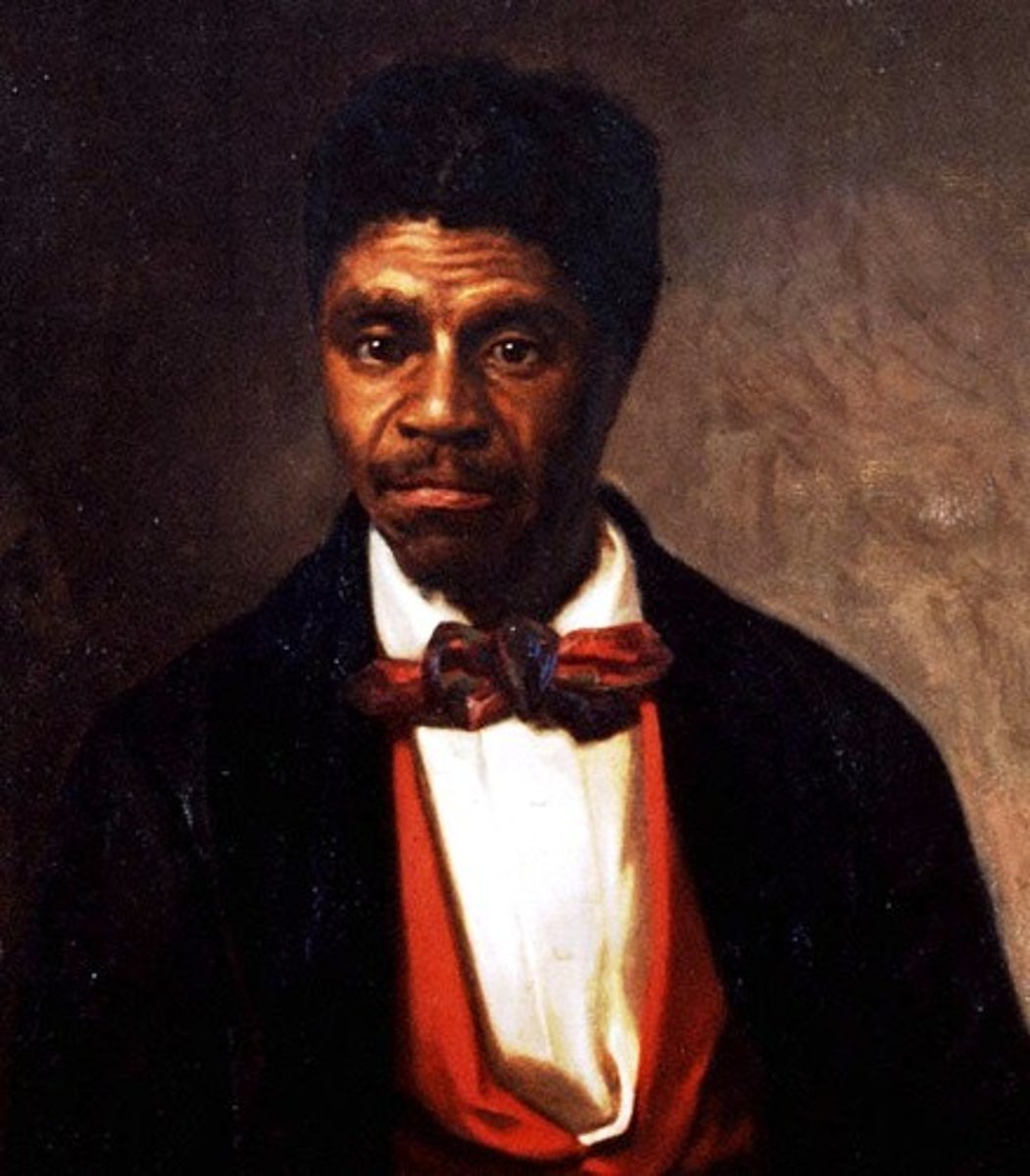
Sectionalism
Loyalty to a region
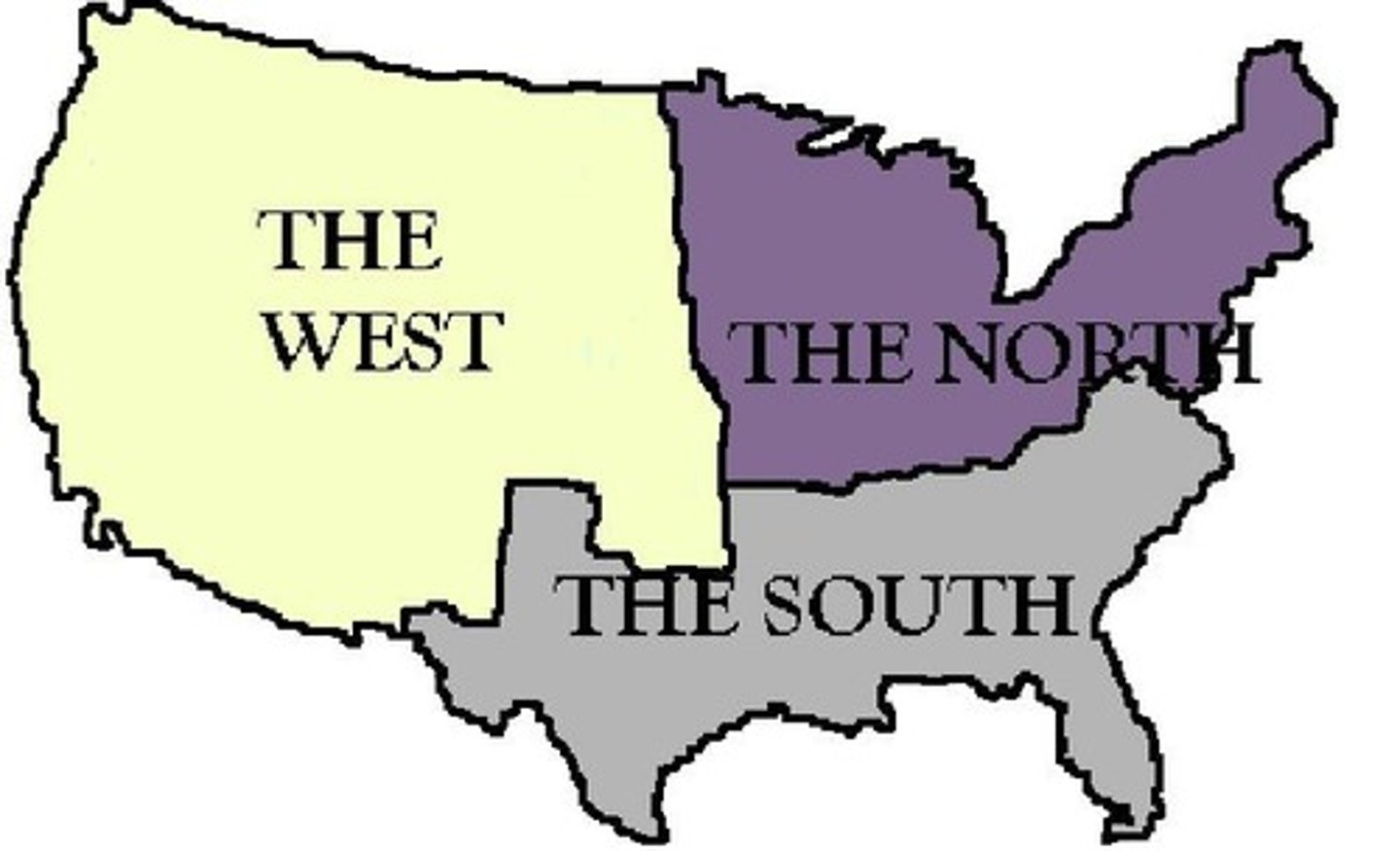
John Brown's Raid
Began when he and his men took over the arsenal in Harpers Ferry, Virginia, in hopes of starting a slave rebellion.
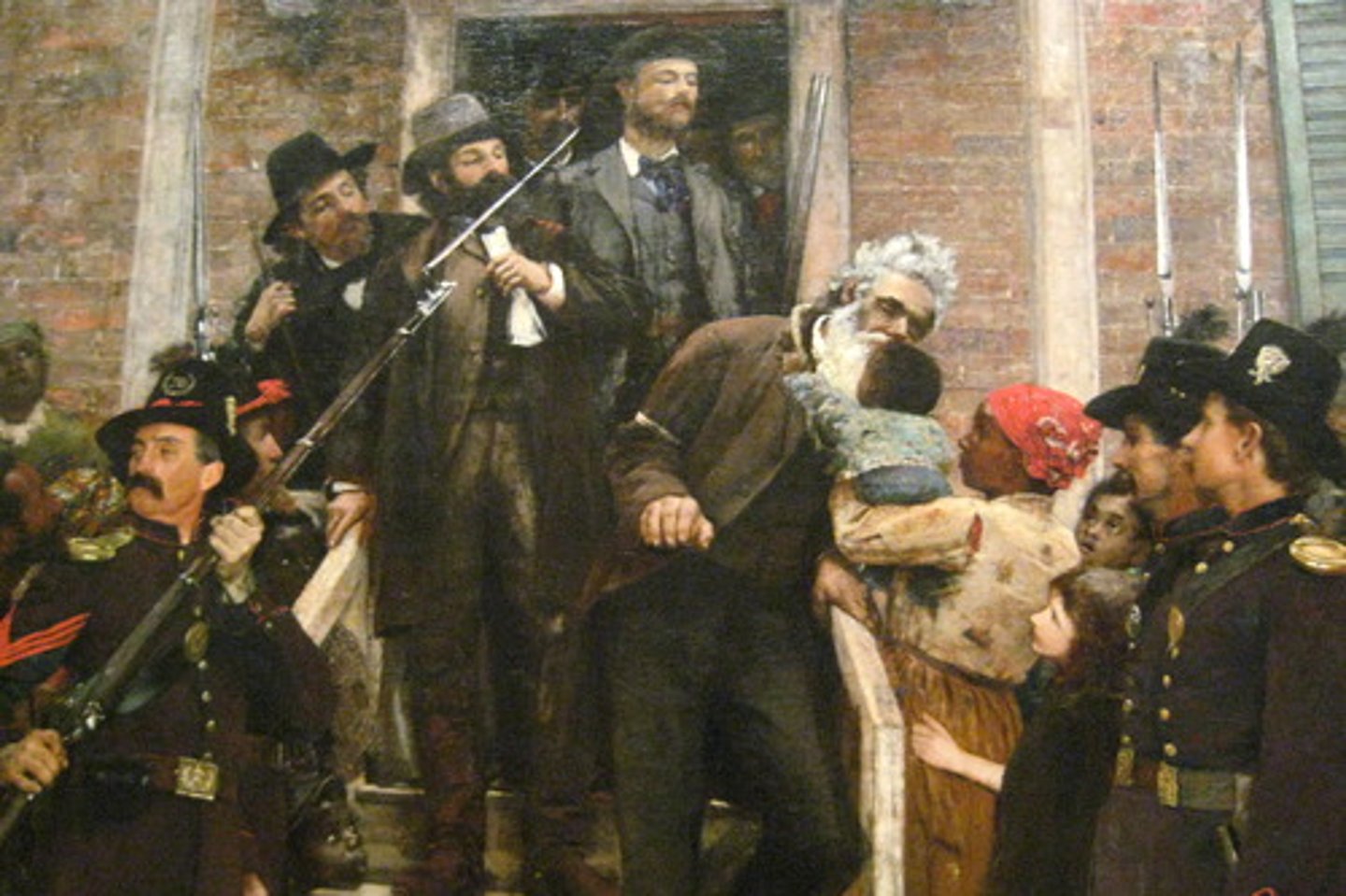
Robert E Lee
Confederate general who had opposed secession but did not believe the Union should be held together by force
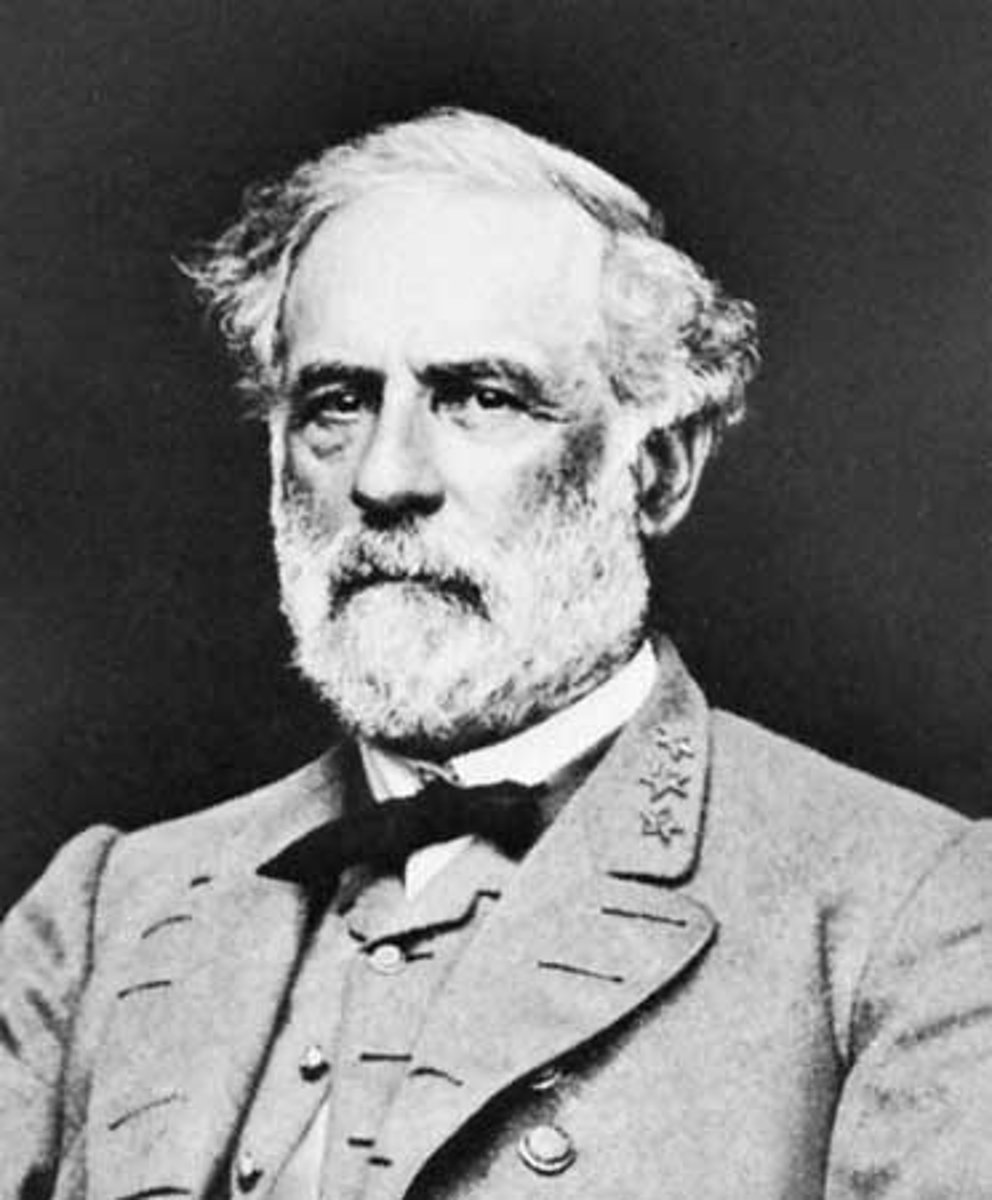
Fort Sumter
Federal fort in the harbor of Charleston, South Carolina; the confederate attack on the fort marked the start of the Civil War
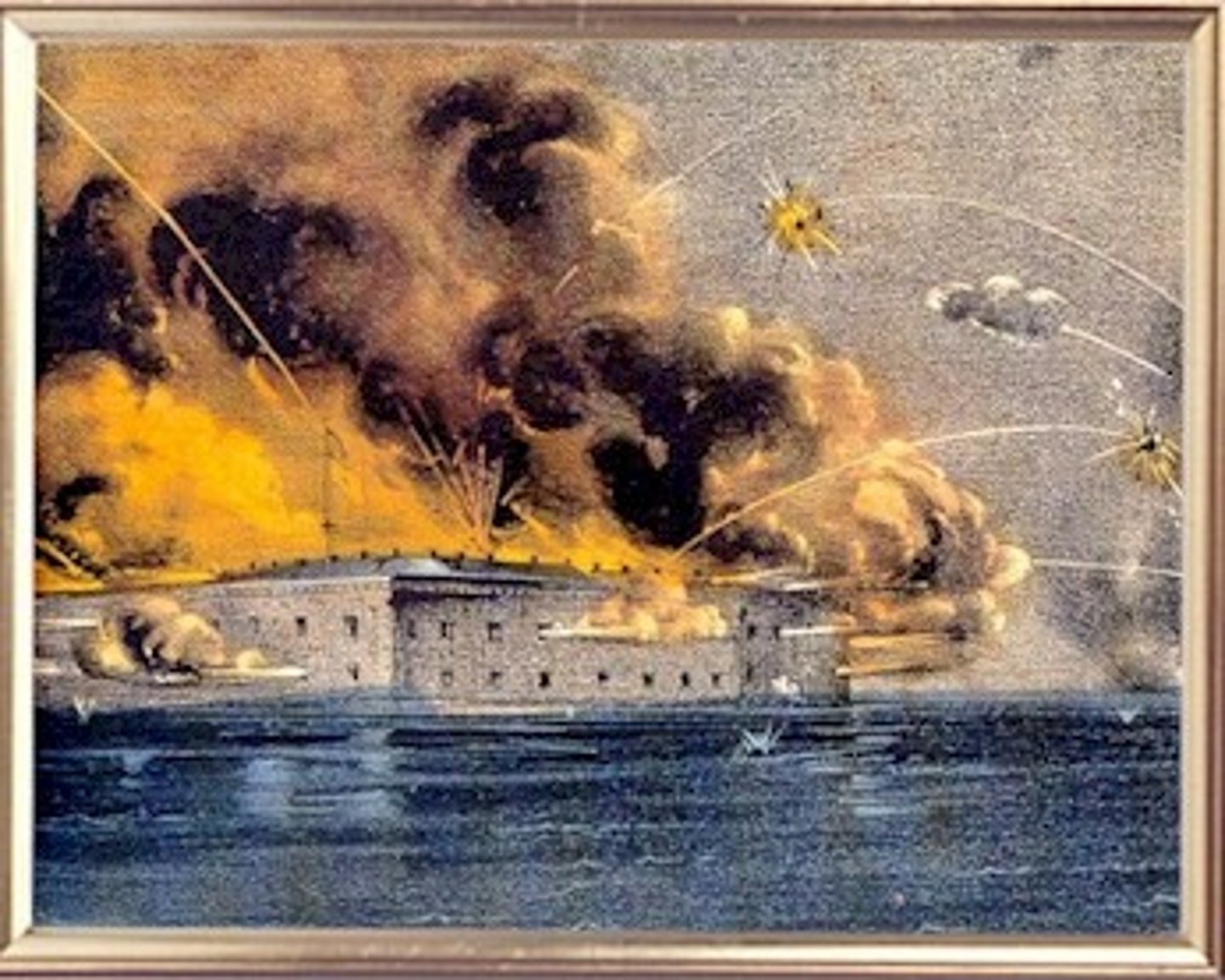
Antietam
A battle near a sluggish little creek, it proved to be the bloodiest single day battle in American History with over 26,000 lives lost in that single day.
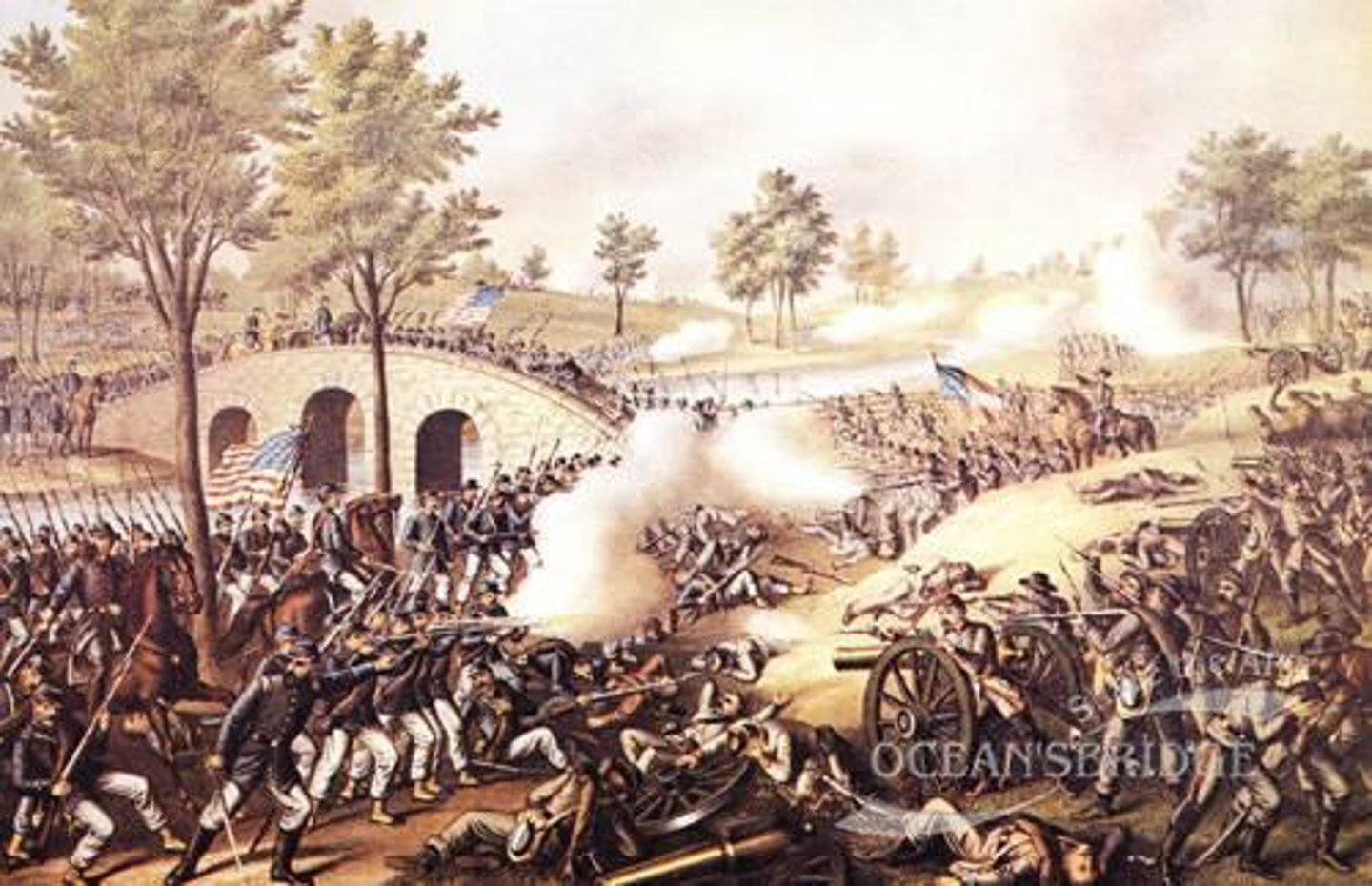
Vicksburg
Grant besieged the city from May 18 to July 4, 1863, until it surrendered, yielding command of the Mississippi River to the Union.
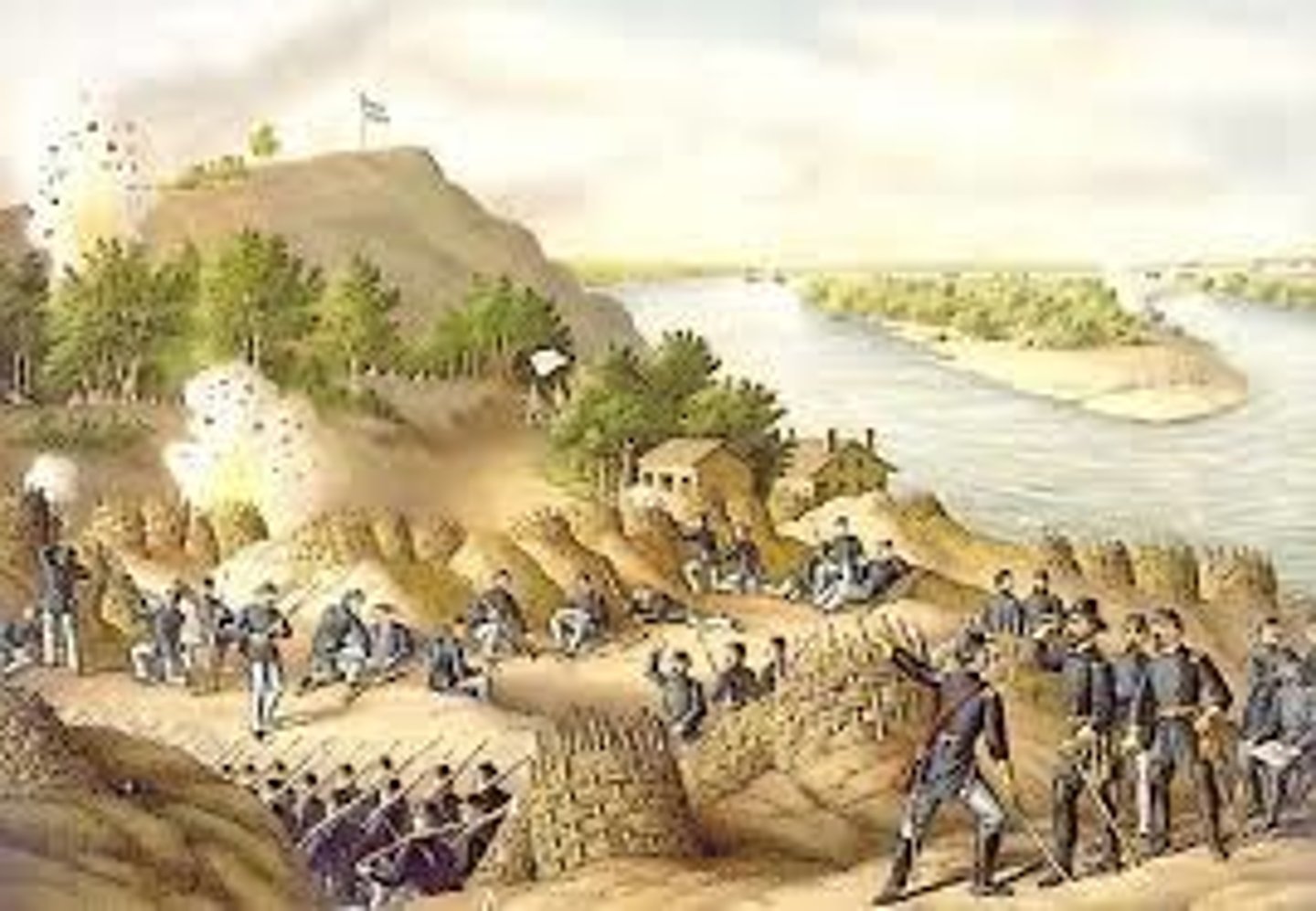
Gettysburg
A large battle in the American Civil War, took place in southern Pennsylvania from July 1 to July 3, 1863. The battle is named after the town on the battlefield. Union General George G. Meade led an army of about 90,000 men to victory against General Robert E. Lee's Confederate army of about 75,000. Gettysburg is the war's most famous battle because of its large size, high cost in lives, location in a northern state, and for President Abraham Lincoln's Gettysburg Address.
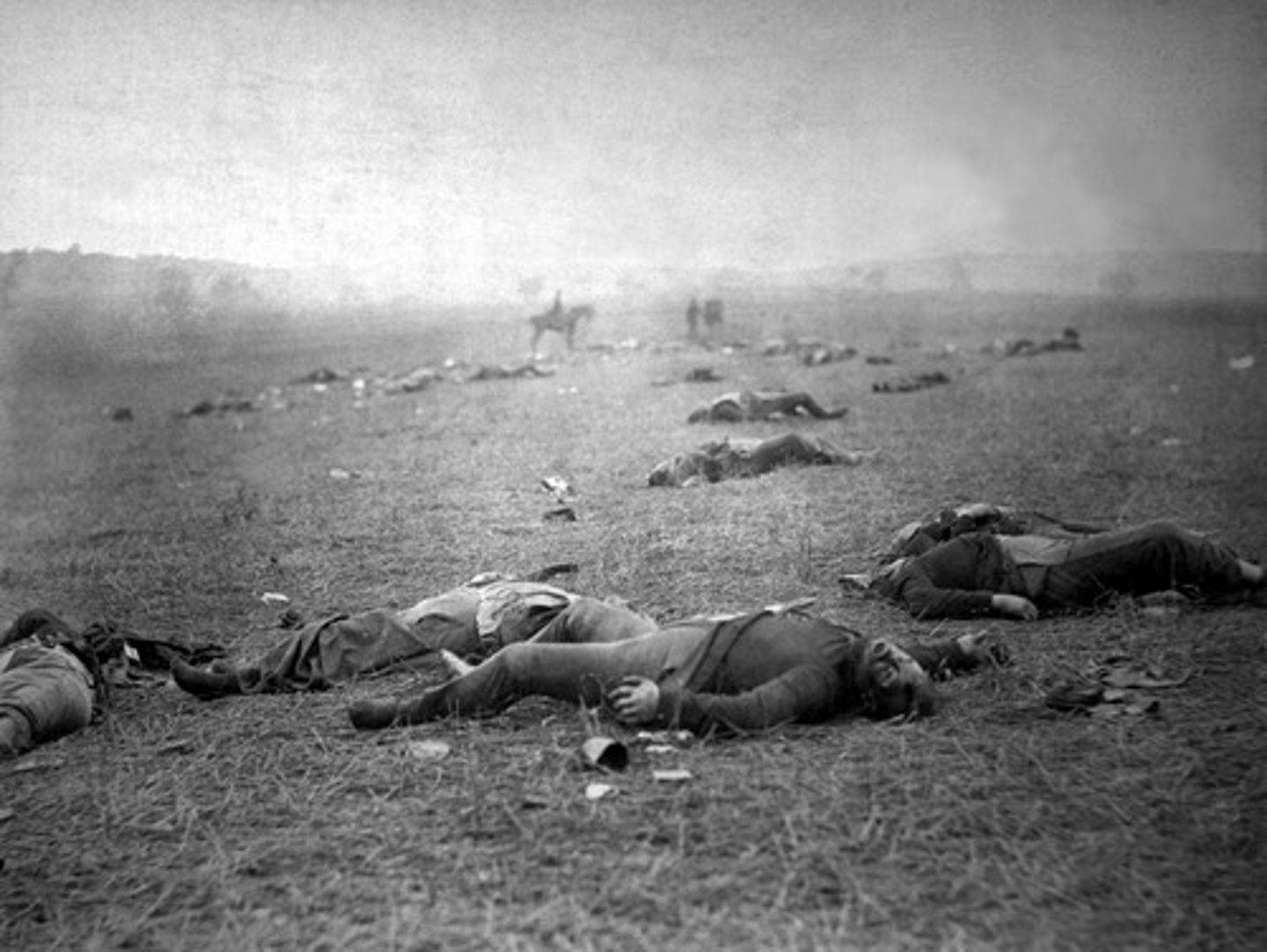
Appomattox Courthouse
April 1865., the Virginia town where Robert E. Lee surrendered to Ulysses S. Grant in 1865, ending the Civil War
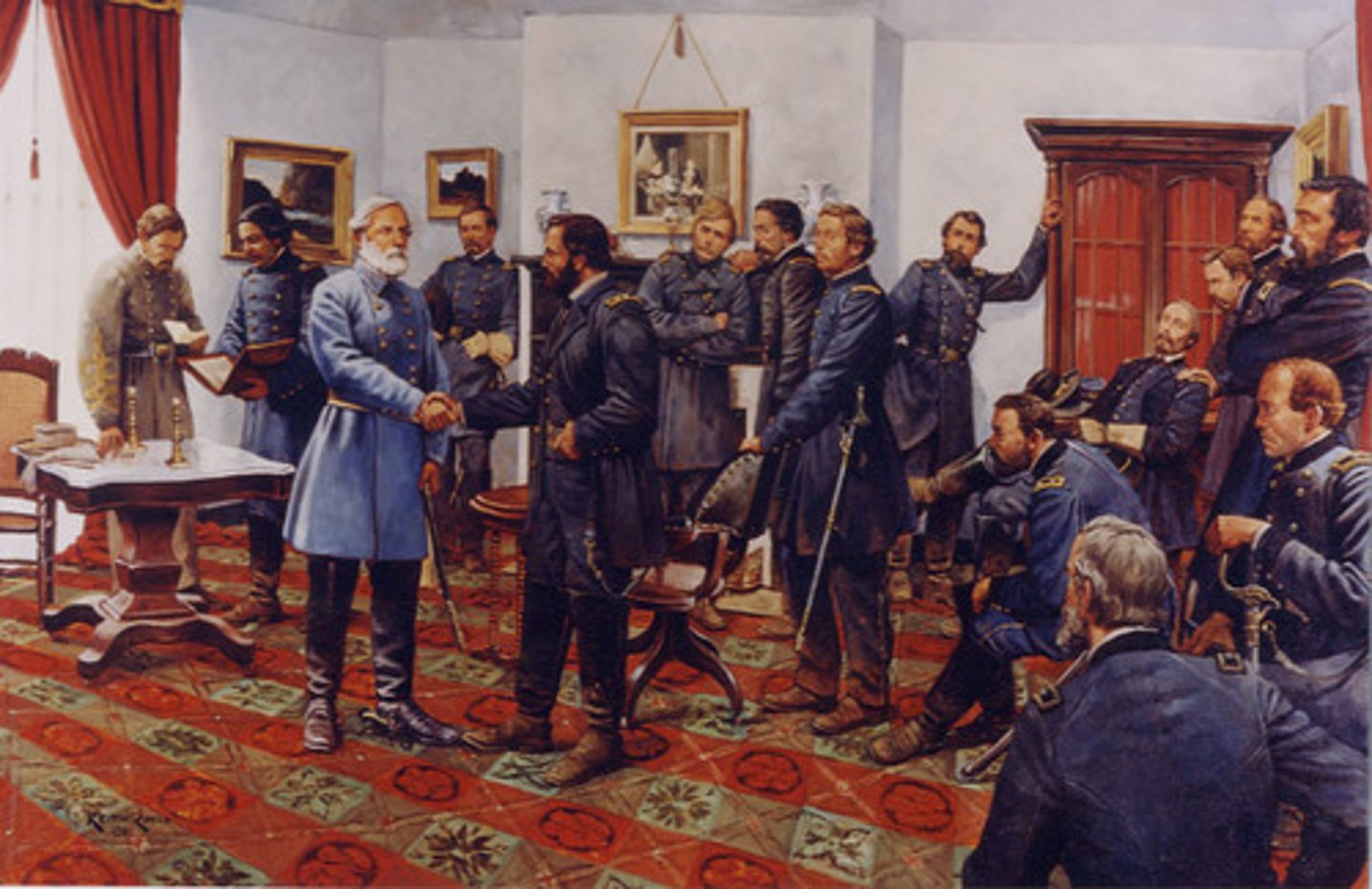
Ulysses S Grant
an American general and the eighteenth President of the United States (1869-1877). He achieved international fame as the leading Union general in the American Civil War.
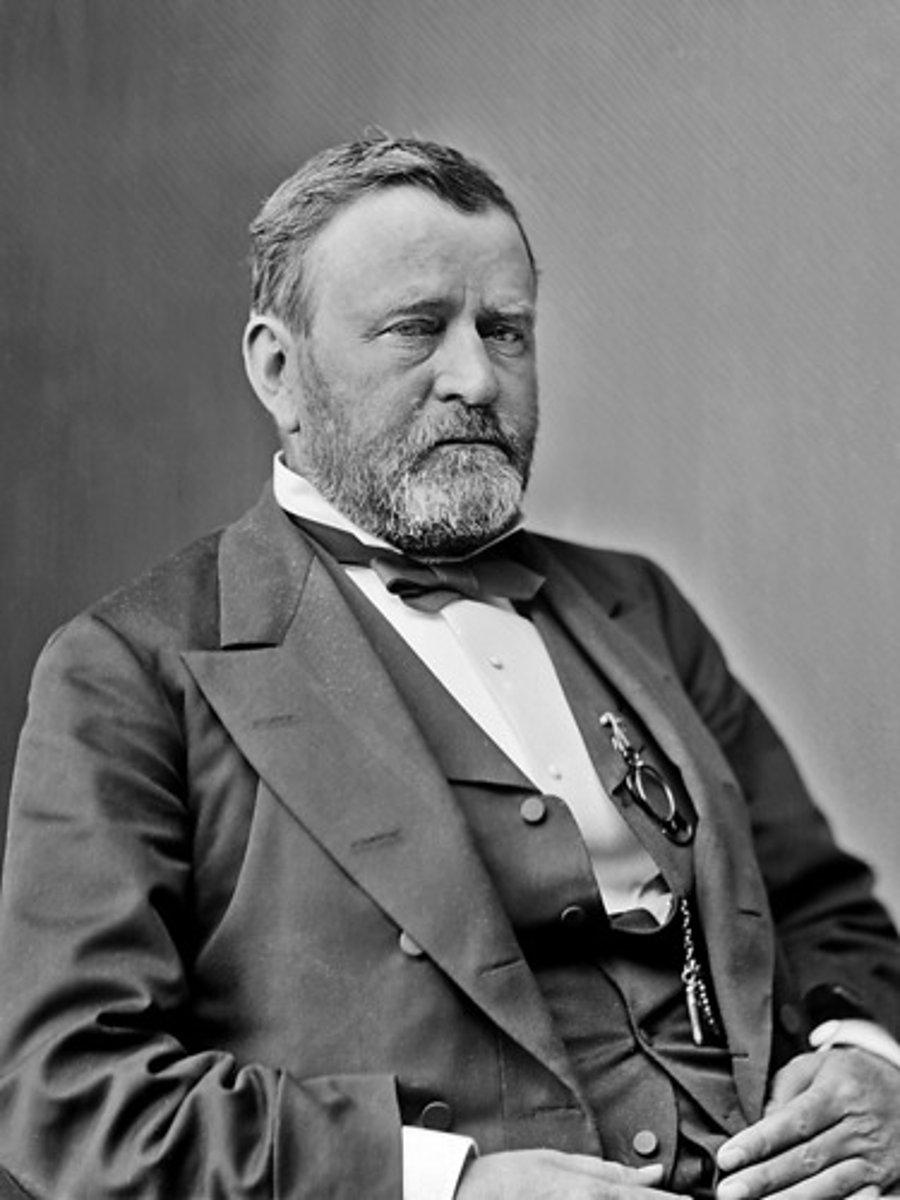
William Tecumseh Sherman
Union General who destroyed South during "march to the sea" from Atlanta to Savannah, example of total war
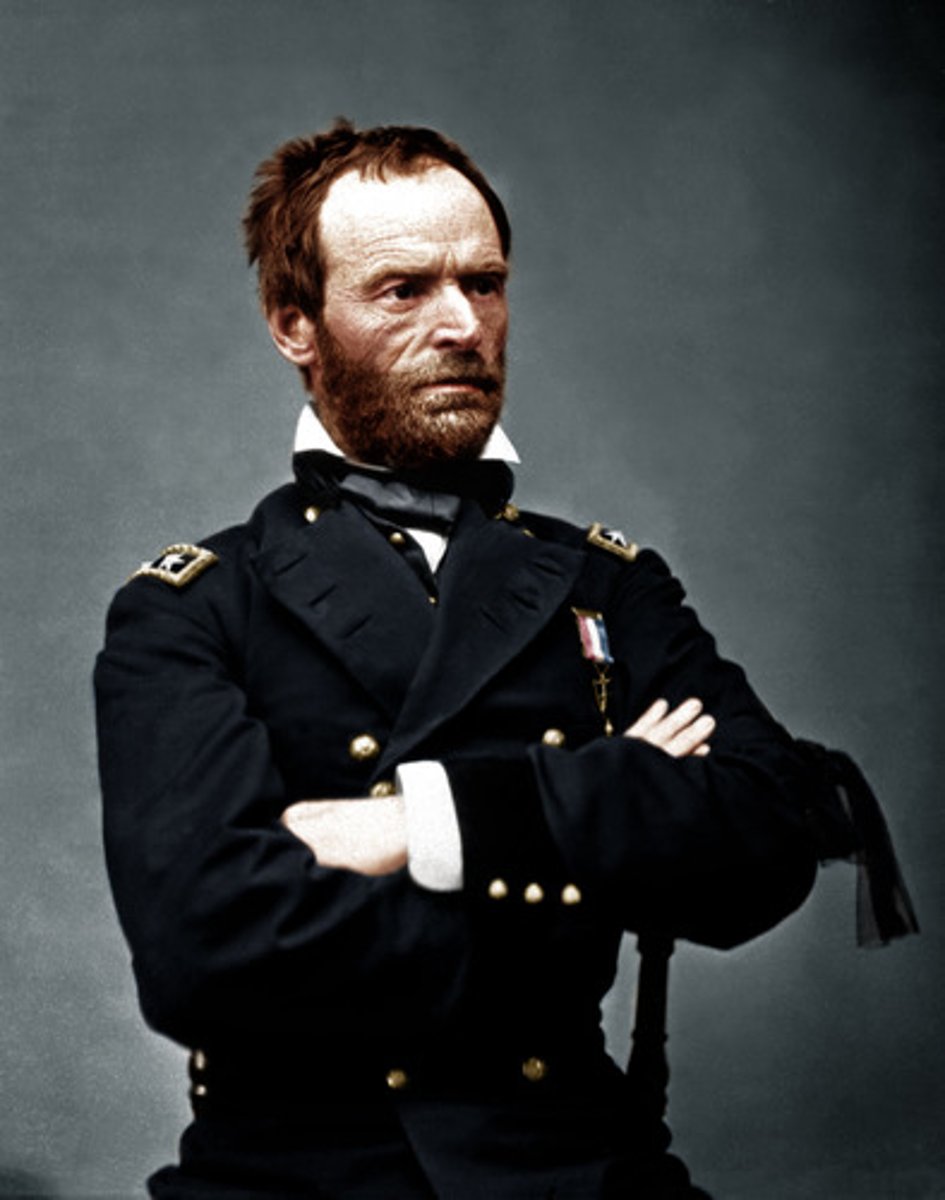
Thomas "Stonewall" Jackson
He was a confederate general who was known for his fearlessness in leading rapid marches bold flanking movements and furious assaults. he earned his nickname at the battle of first bull run for standing courageously against union fire. During the battle of Chancellorsville his own men accidently mortally wounded him.
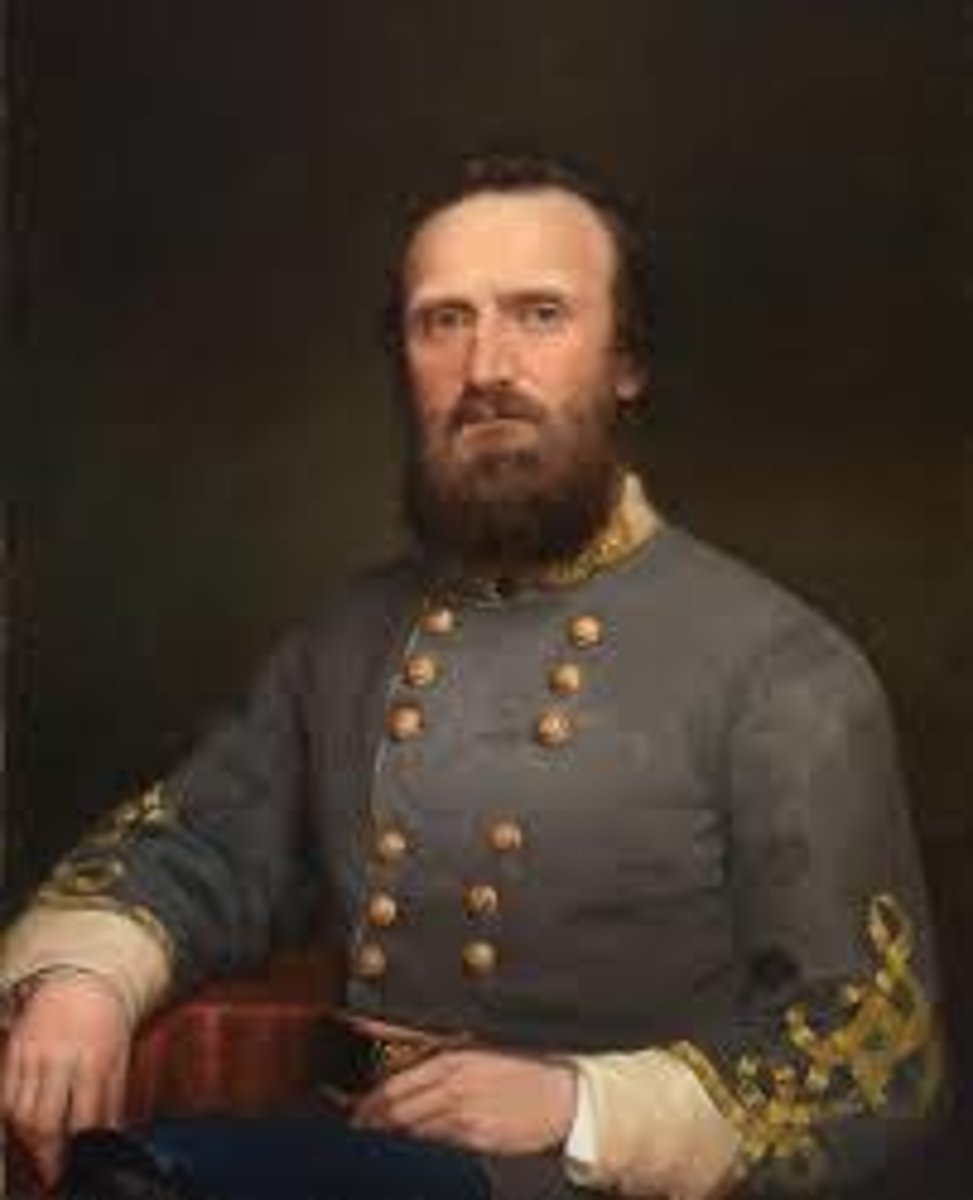
habeas corpus
Constitutional protection against unlawful imprisonment
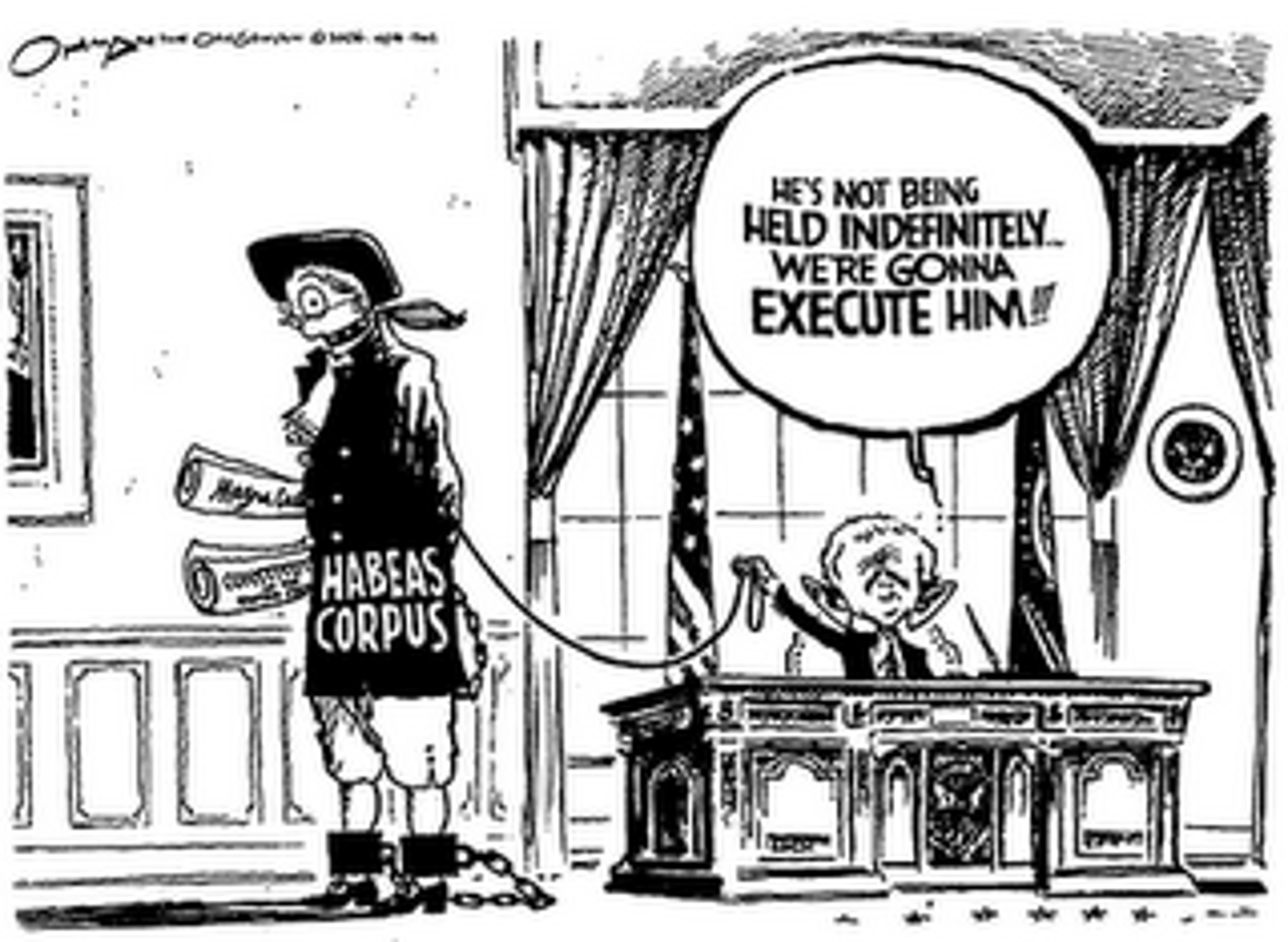
martial law
rule by the army instead of the elected government
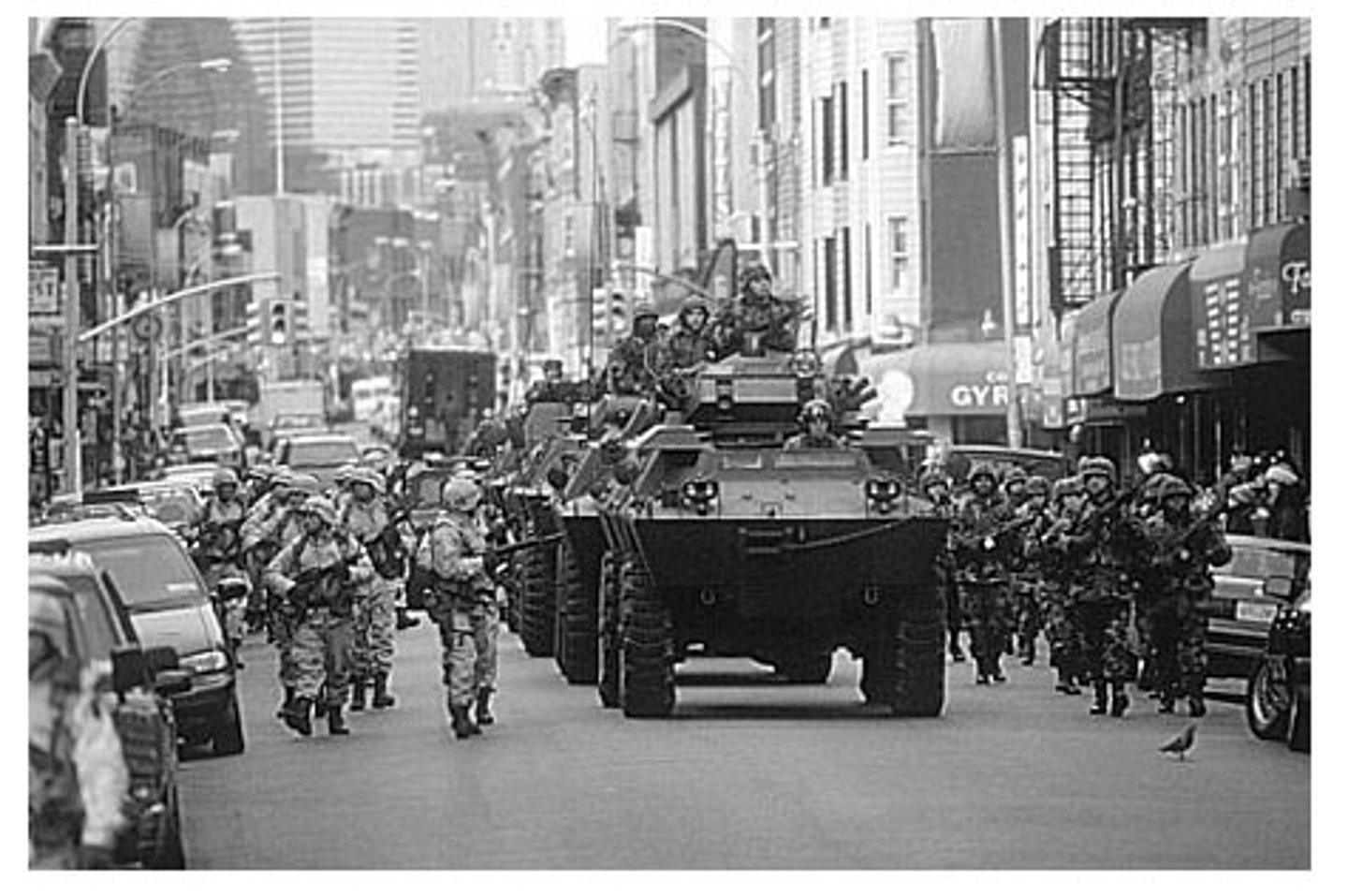
emergency powers
Wide-ranging powers a president may exercise during times of crisis or those powers permitted the president by Congress for a limited time.
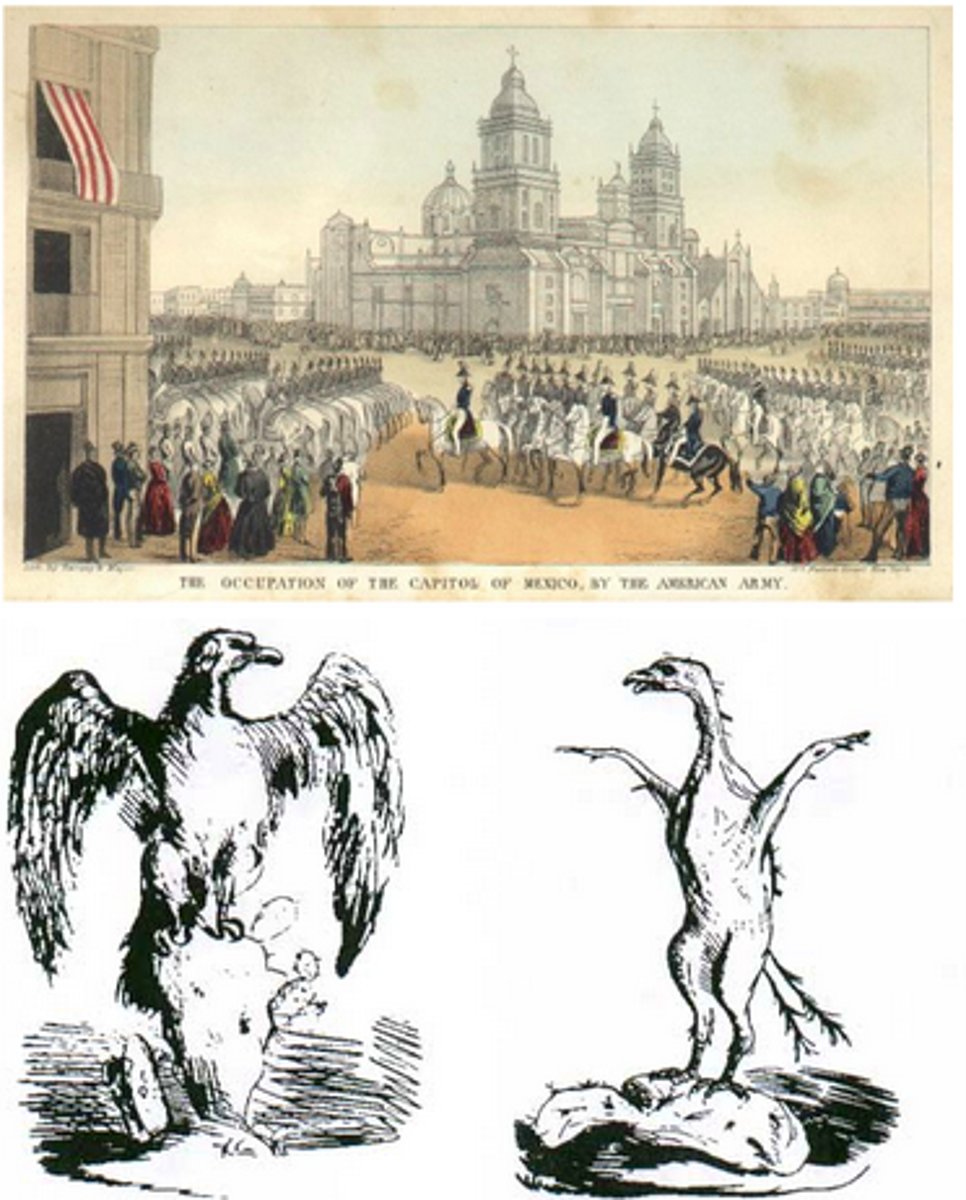
Lincoln 1st Inaugural Address
Lincoln tries to appease the south and avoid war
Gettysburg Address
A 3-minute address by Abraham Lincoln during the American Civil War (November 19, 1963) at the dedication of a national cemetery on the site of the Battle of Gettysburg
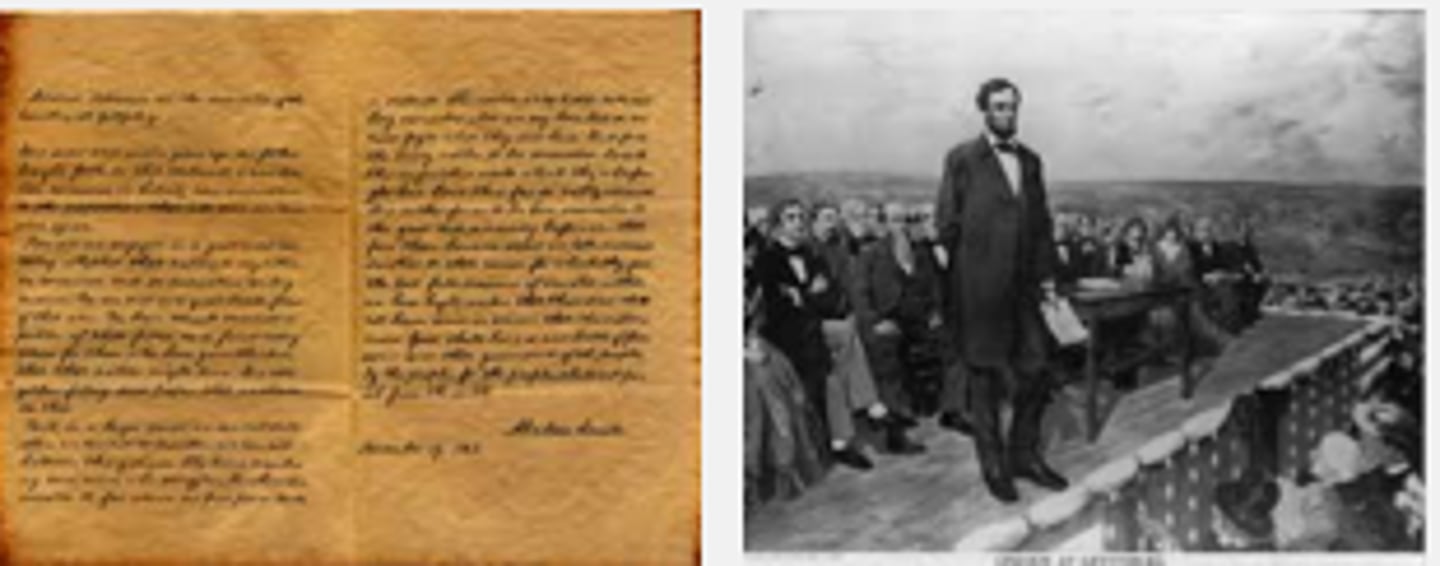
Lincoln 2nd Inaugural Address
"with malice toward none, and charity for all"
Presidential Reconstruction
President's idea of reconstruction : all states had to end slavery, states had to declare that their secession was illegal, and men had to pledge their loyalty to the U.S.
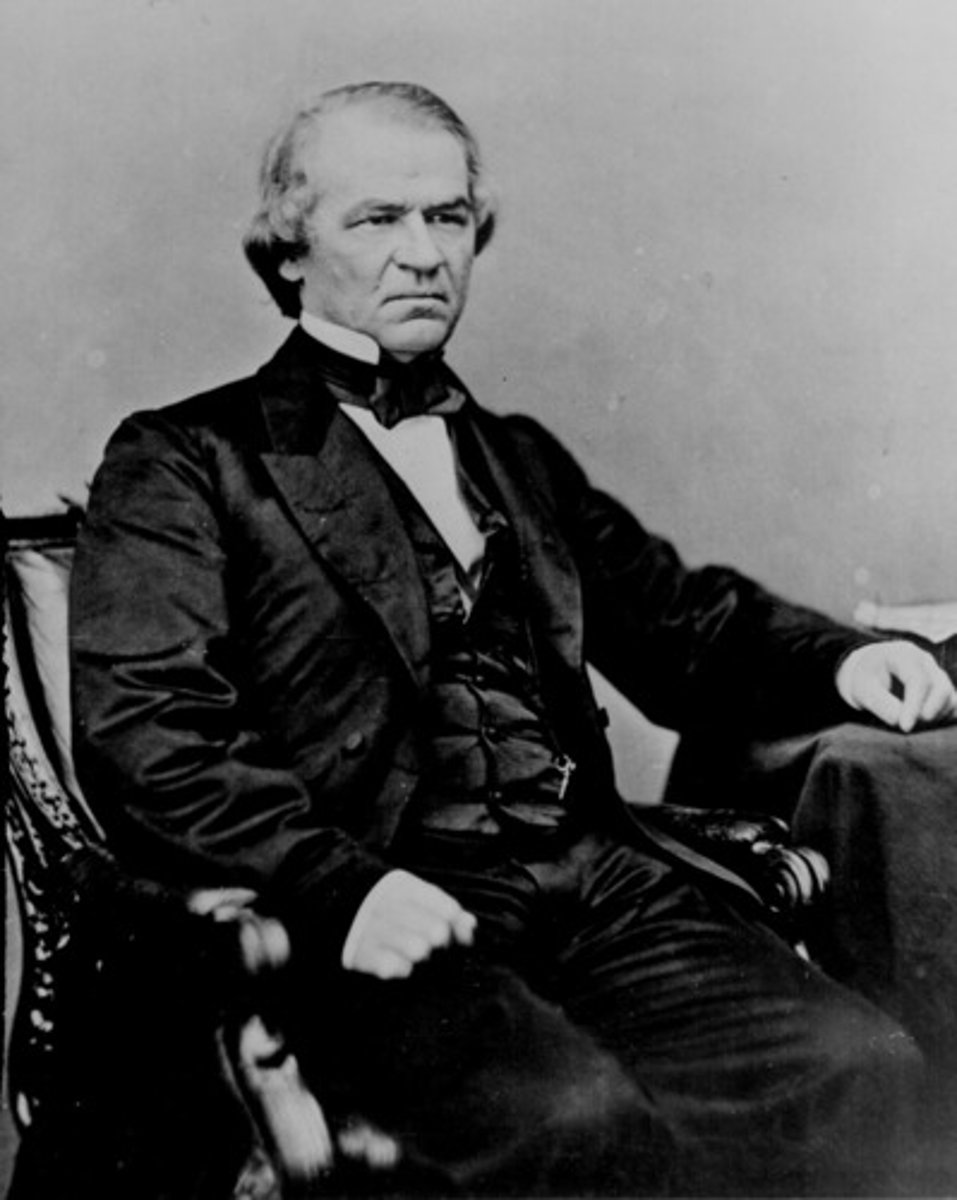
Radical Reconstruction
Reconstruction strategy that was based on severely punishing South for causing war
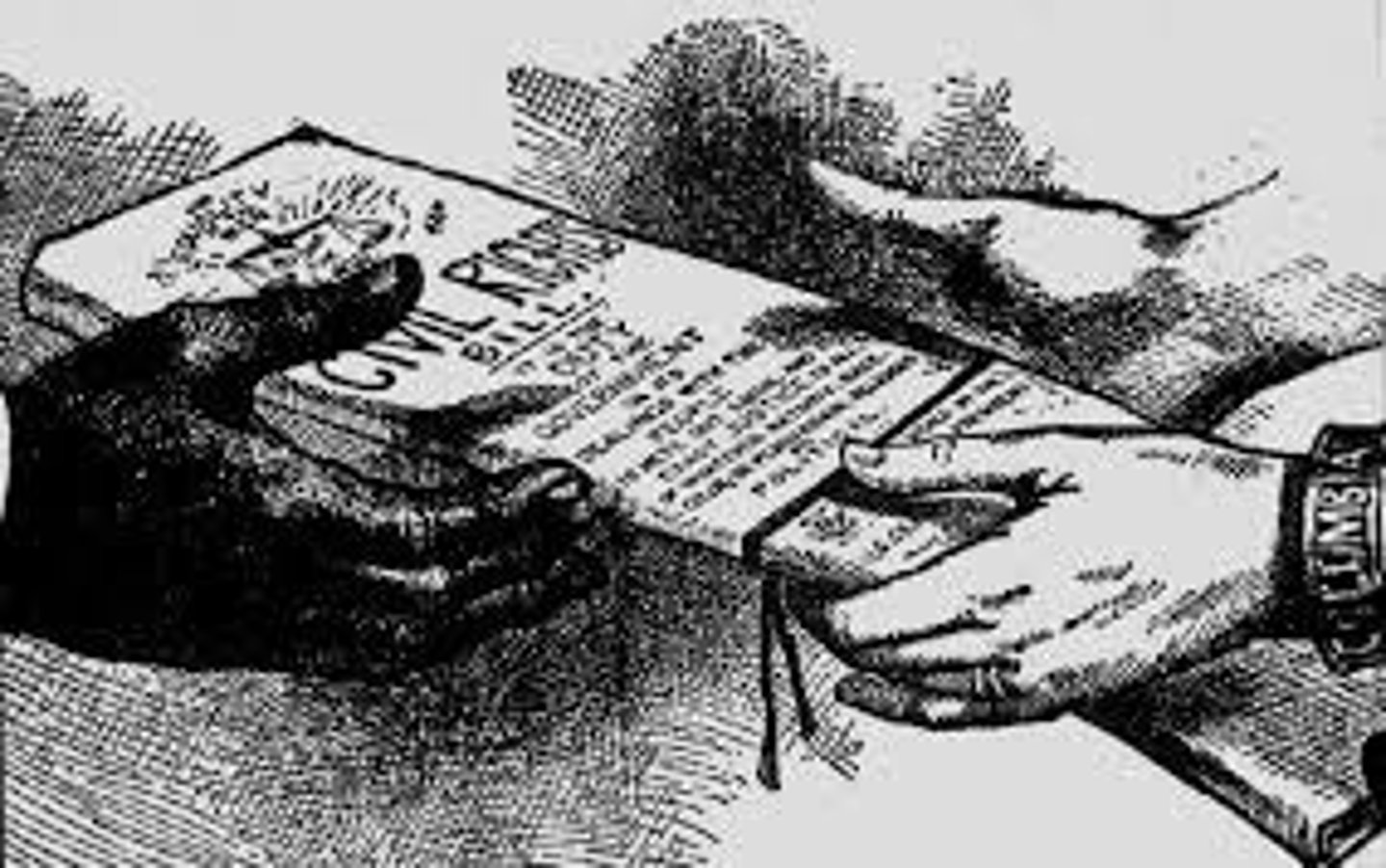
Black Codes
Laws denying most legal rights to newly freed slaves; passed by southern states following the Civil War
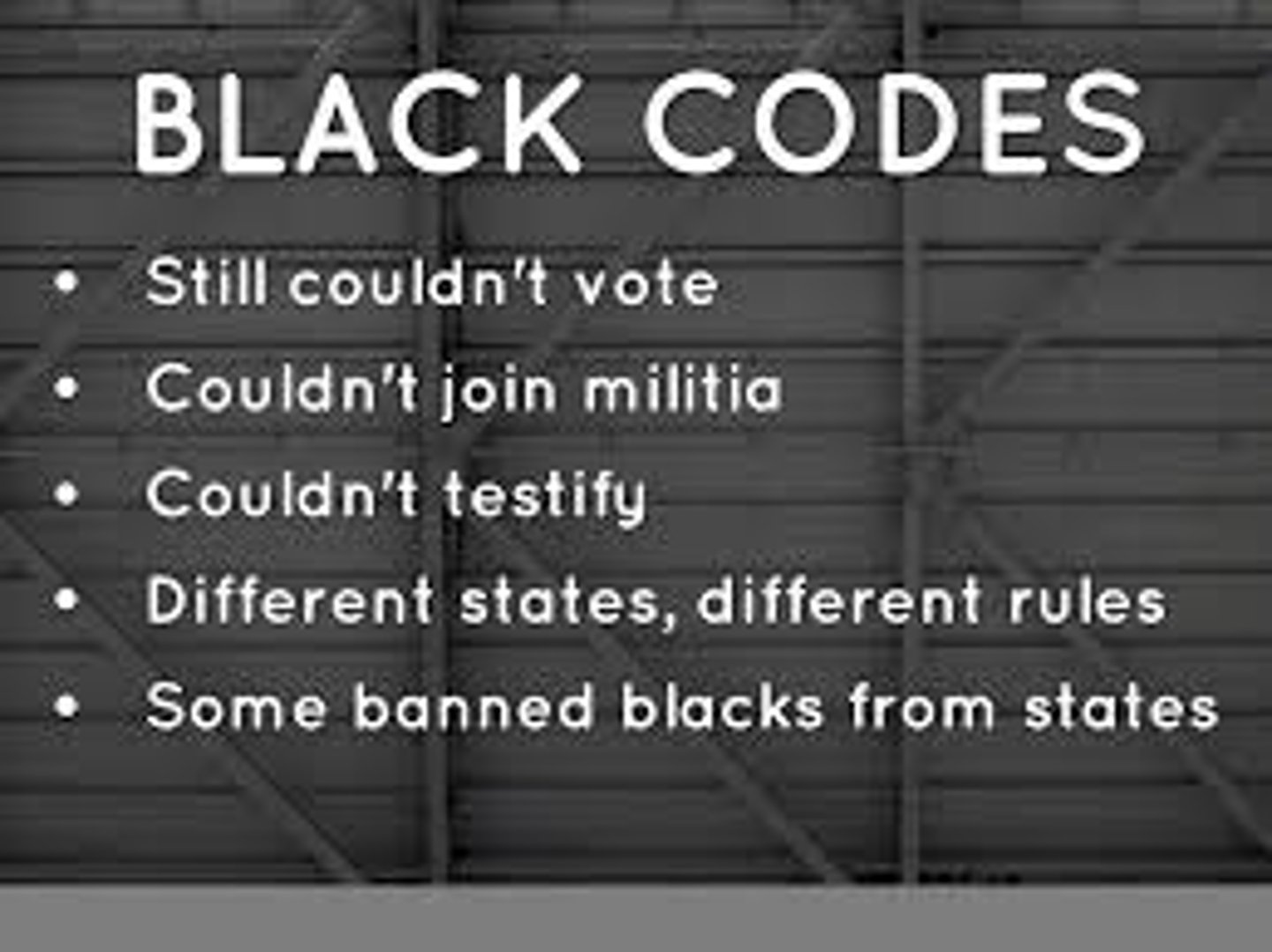
Military Reconstruction Act
1867; divided the South into five districts and placed them under military rule; required Southern States to ratify the 14th amendment; guaranteed freedmen the right to vote in convention to write new state constitutions
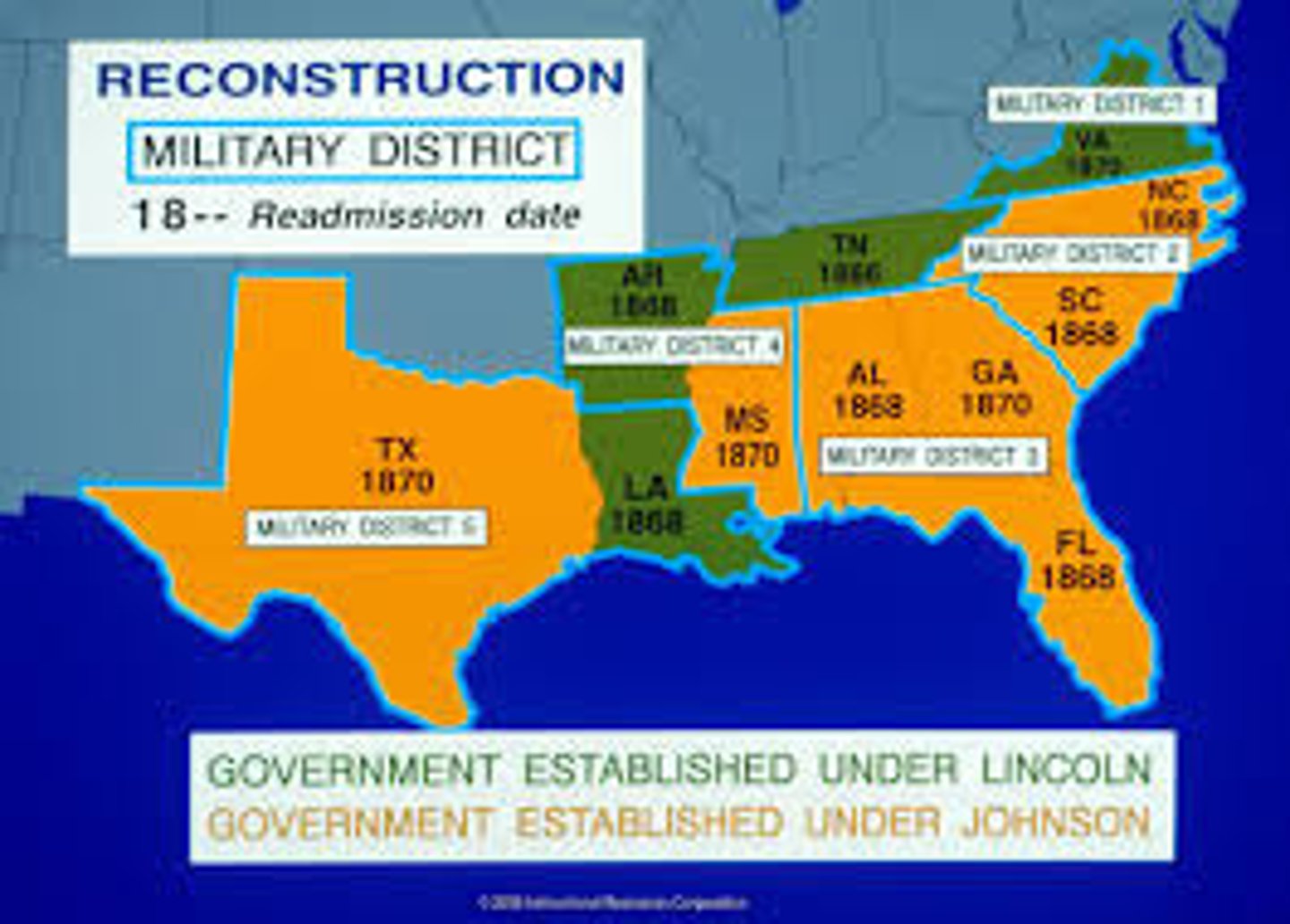
Reconstruction Amendments
13th: abolished and continues to prohibit slavery and involuntary servitude, 14th: secured the rights of former slaves after reconstruction, 15th: prohibits each government in the United States to prevent a citizen from voting based on their race

Freedmen's Bureau
1865. help former black slaves after civil war
Organization run by the army to care for and protect southern Blacks after the Civil War
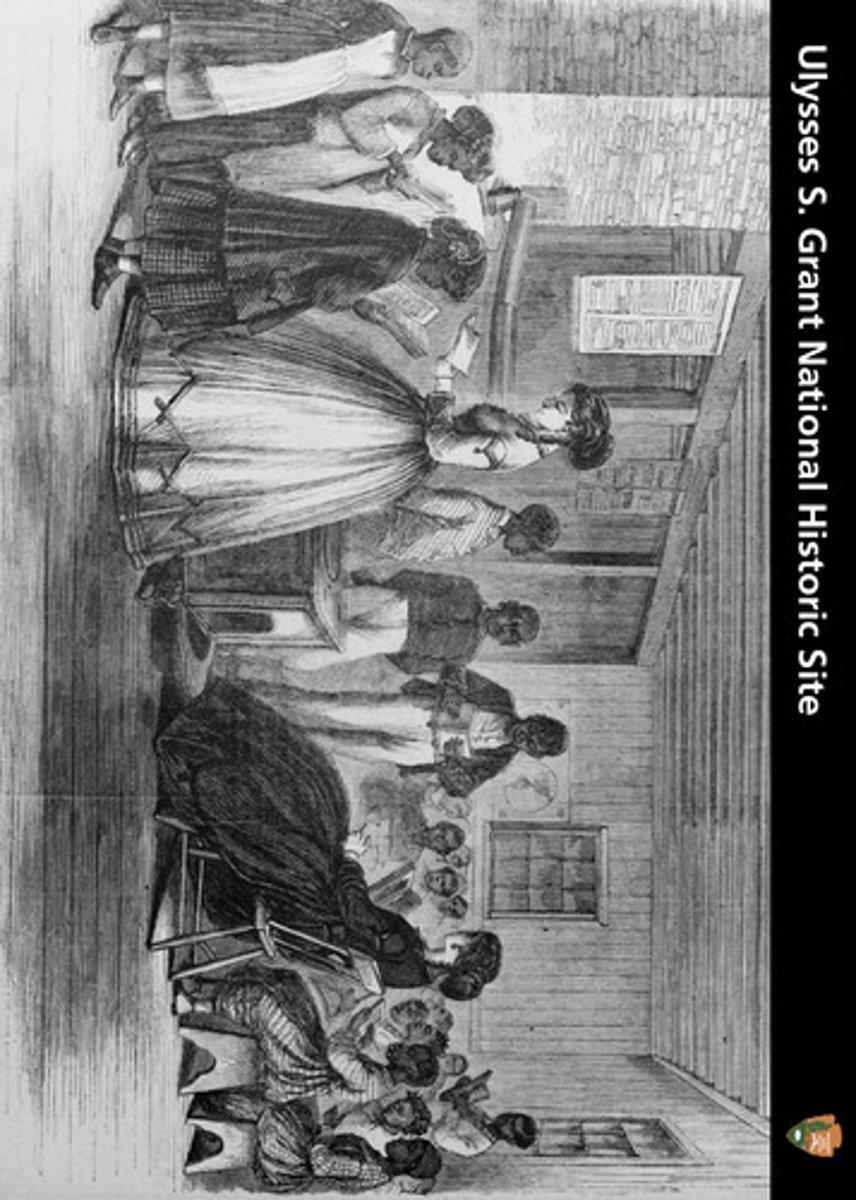
Compromise of 1877
Ended Reconstruction. Republicans promise 1) Remove military from South, 2) Appoint Democrat to cabinet (David Key postmaster general), 3) Federal money for railroad construction and levees on Mississippi river
Election of 1876
Ended reconstruction because neither candidate had an electoral majority. The Democrat Sam Tilden loses the election to Rutherford B Hayes, Republican, was elected, and then ended reconstruction as he secretly promised.
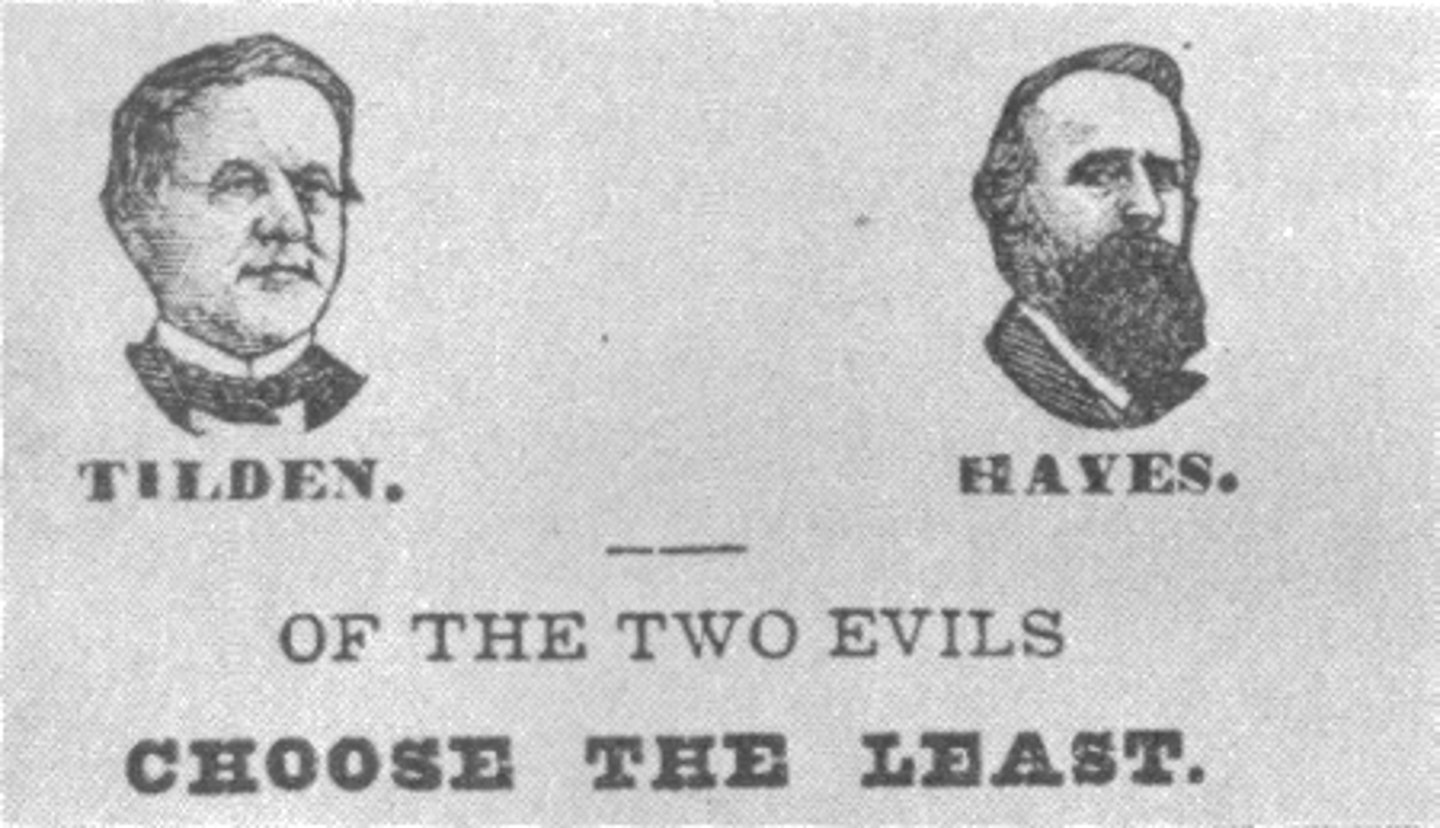
KKK
Stands for Ku Klux Klan and started right after the Civil War in 1866. The Southern establishment took charge by passing discriminatory laws known as the black codes. Gives whites almost unlimited power. They masked themselves and burned black churches, schools, and terrorized black people. They are anti-black and anti-Semitic.
carpetbagger
A northerner who went to the South immediately after the Civil War; especially one who tried to gain political advantage or other advantages from the disorganized situation in southern states
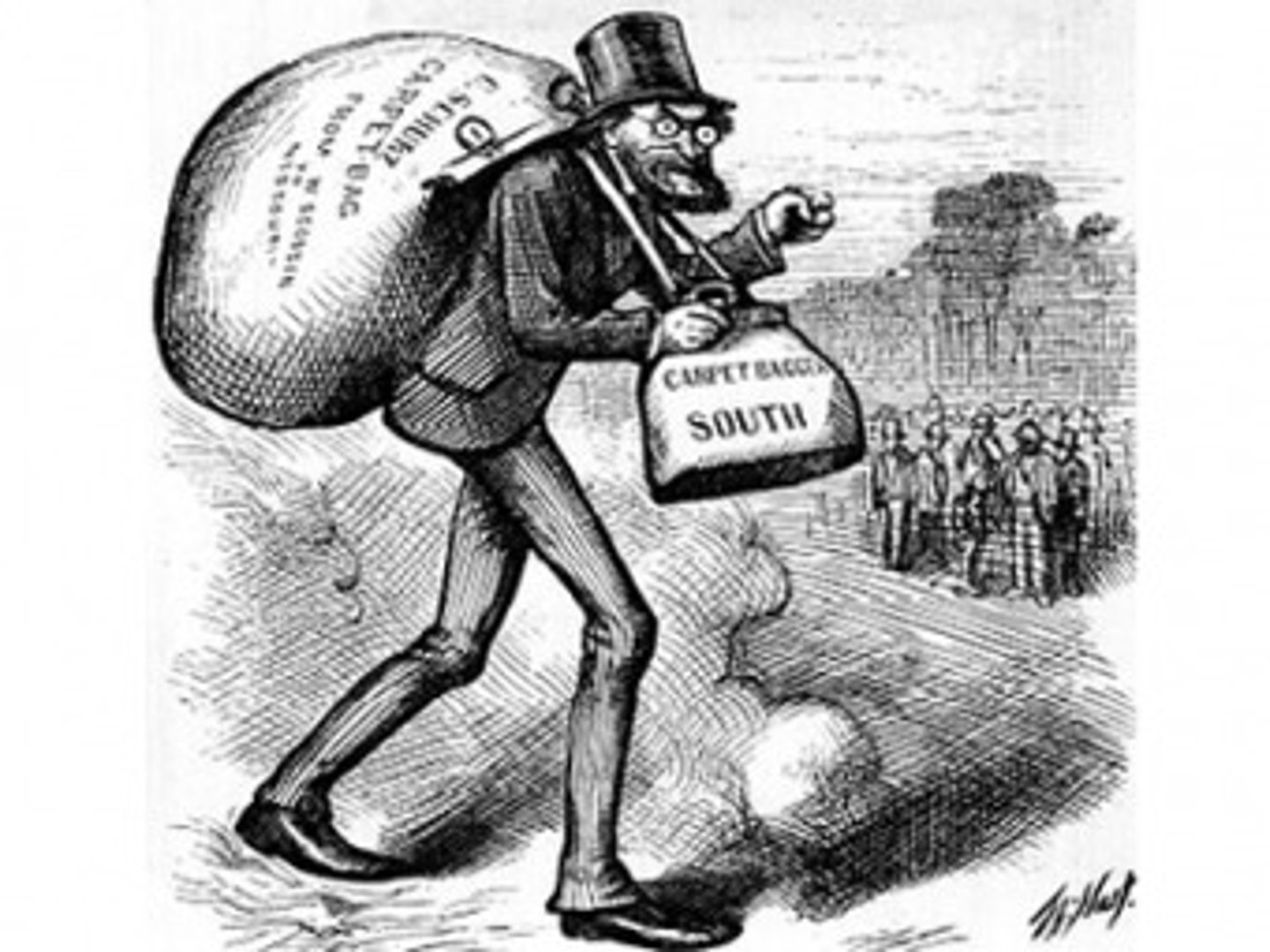
scalawag
A derogatory term for Southerners who were working with the North to buy up land from desperate Southerners
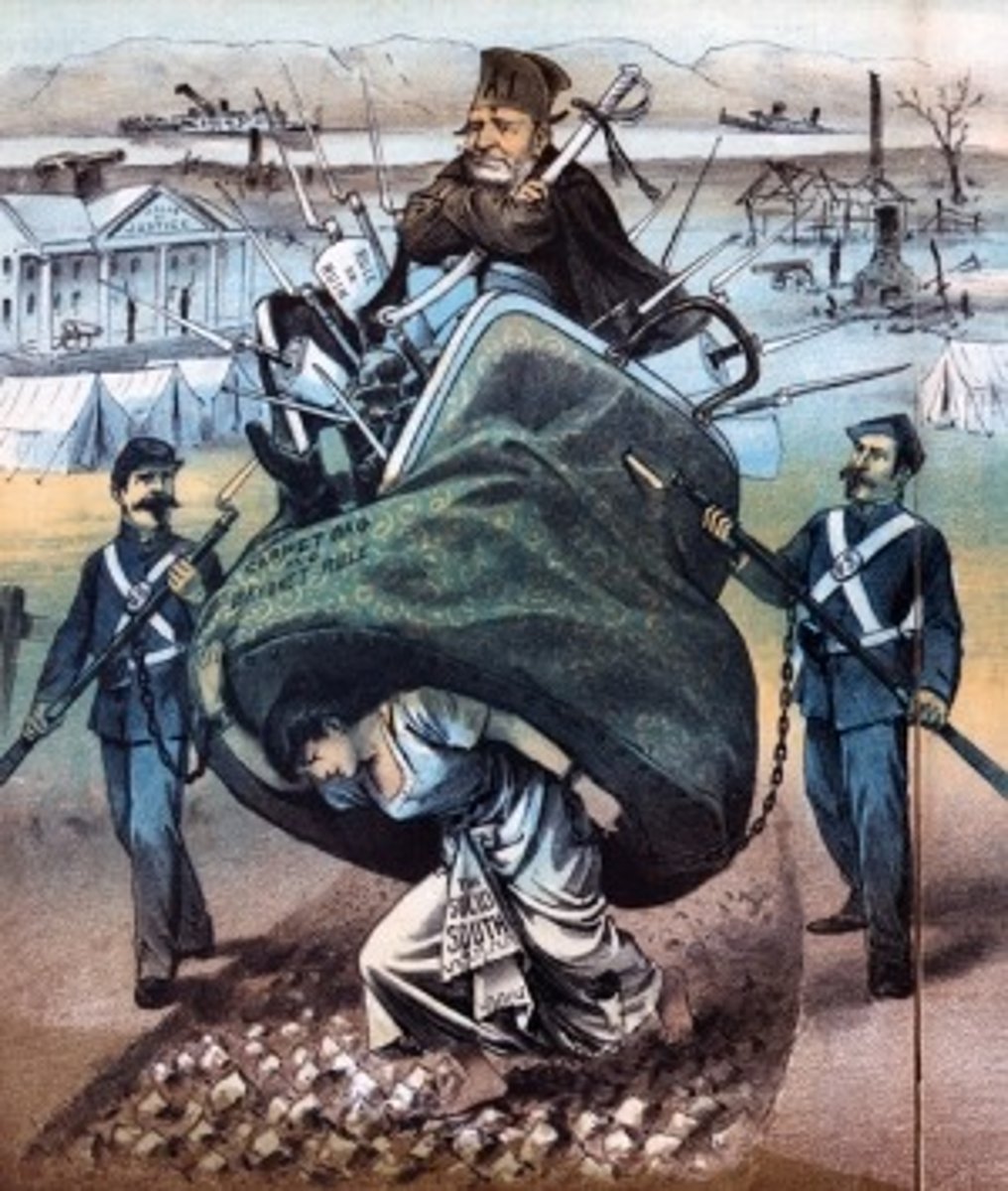
sharecropper
A person who works fields rented from a landowner and pays the rent and repays loans by turning over to the landowner a share of the crops.
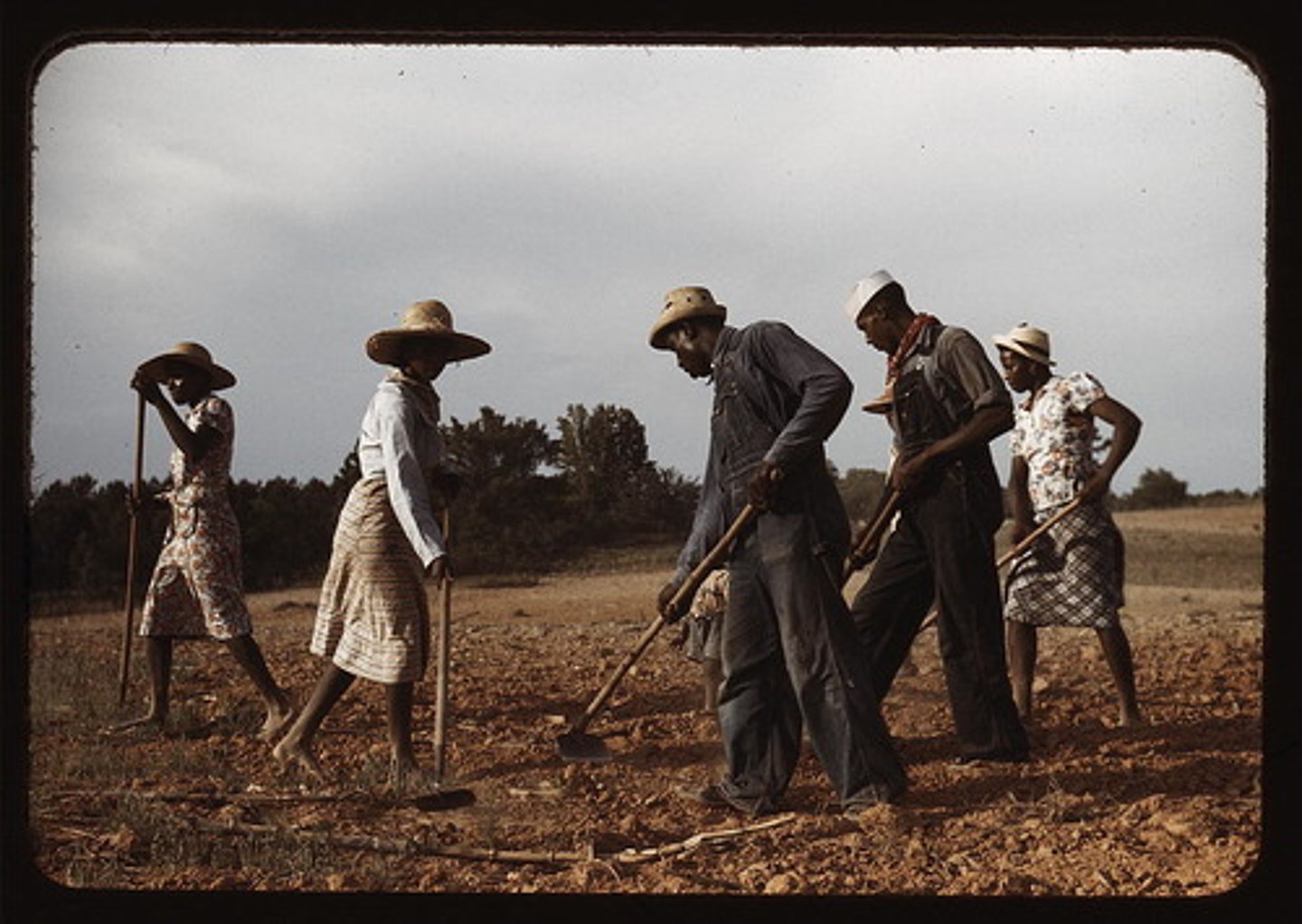
Morehouse College
Founded in Atlanta in 1867 for black education for professional careers such as lawyers, ministers, and educators.
peculiar institution
southern euphemism for slavery
John C. Calhoun
South Carolina Senator - advocate for state's rights, limited government, and nullification
Harriet Tubman
United States abolitionist born a slave on a plantation in Maryland and became a famous conductor on the Underground Railroad leading other slaves to freedom in the North (1820-1913)
Sojourner Truth
United States abolitionist and feminist who was freed from slavery and became a leading advocate of the abolition of slavery and for the rights of women (1797-1883)
Fredrick Douglas
former slave + abolitionist, stood up for his beliefs, fought for womens + blacks rights, runaway slave, newspaper-the north star
Sarah and Angelina Grimke
Quaker sisters from South Carolina who came north and became active in the abolitionist movement; Angelina married Theodore Weld, a leading abolitionist and Sarah wrote and lectured on a variety of reforms including women's rights and abolition.
Nat Turner's Rebellion
Rebellion in which Nat Turner led a group of slaves through Virginia in an unsuccessful attempt to overthrow and kill planter families
Declaration of Sentiments
declared that all "people are created equal"; used the Declaration of Independence to argue for women's rights
Underground Railroad
abolitionists secret aid to escaping slaves
James K. Polk
president in March 1845. wanted to settle Oregon boundary dispute with Britain. wanted to acquire California. wanted to incorporate Texas into union.
Bear Flag Republic
aka the California republic; the result of a revolt by Americans on June 14, 1846, in the town of Sonoma against the authorities of the Mexican province of California; the Republic lasted less than a month. The republic eventually became the present-day state of California.
Wilmot Proviso
Bill that would ban slavery in the territories acquired after the War with Mexico
Treaty of Guadalupe Hidalgo
Treaty that ended the Mexican War, granting the U.S. control of Texas, New Mexico, and California in exchange for $15 million
Oregon Trail
pioneer trail that began in missouri and crossed the great plains into the oregon country
Harriet Beecher Stowe
United States writer of a novel about slavery that advanced the abolitionists' cause (1811-1896)
John Brown
abolitionist who was hanged after leading an unsuccessful raid at Harper's Ferry, Virginia (1800-1858)
apologists
Christian thinkers who defended slavery and explained its "positive good" through Christian beliefs
Free-soil party
Formed in 1847 - 1848, dedicated to opposing slavery in newly acquired territories such as Oregon and ceded Mexican territory.
49ers
People who rushed to california in 1849 for gold.
Republican Party
the younger of two major political parties in the United States
Confederate States of America
a republic formed in February of 1861 and composed of the eleven Southern states that seceded from the United States
Gadsden Purchase
purchase of land from mexico in 1853 that established the present U.S.-mexico boundary
Fugitive Slave Law
Enacted by Congress in 1793 and 1850, these laws provided for the return of escaped slaves to their owners. The North was lax about enforcing the 1793 law, with irritated the South no end. The 1850 law was tougher and was aimed at eliminating the underground railroad.
The Compromise of 1850
Slavery becomes outlawed in Washington D.C., California is admitted as a free state, and Utah and New Mexico will determine whether slavery is allowed through popular sovereignty. Also, the Fugitive Slave Law is passed.
The Kansas-Nebraska Act
..., 1854; sponsored by Senator Stephen Douglas, this would rip open the slavery debate; and create the territories of Kansas and Nebraska, opened new lands, repealed the Missouri Compromise of 1820, and allowed settlers in those territories to determine if they would allow slavery within their boundaries.
Dred Scott v. Sanford
..., Supreme Court case that decided US Congress did not have the power to prohibit slavery in federal territories and slaves, as private property, could not be taken away without due process - basically slaves would remain slaves in non-slave states and slaves could not sue because they were not citizens
Bleeding Kansas
..., A sequence of violent events involving abolitionists and pro-Slavery elements that took place in Kansas-Nebraska Territory. The dispute further strained the relations of the North and South, making civil war imminent.
Harper's Ferry
..., John Brown's scheme to invade the South with armed slaves, backed by sponsoring, northern abolitionists; seized the federal arsenal; Brown and remnants were caught by Robert E. Lee and the US Marines; Brown was hanged
popular sovereignty
..., The doctrine that stated that the people of a territory had the right to decide their own laws by voting. In the Kansas-Nebraska Act, popular sovereignty would decide whether a territory allowed slavery.
Robert E. Lee
..., Confederate general who had opposed secession but did not believe the Union should be held together by force
Ulysses S. Grant
..., an American general and the eighteenth President of the United States (1869-1877). He achieved international fame as the leading Union general in the American Civil War.
Abraham Lincoln
..., 16th President of the United States saved the Union during the Civil War and emancipated the slaves; was assassinated by Booth (1809-1865)
John Wilkes Booth
..., was an American stage actor who, as part of a conspiracy plot, assassinated Abraham Lincoln, the 16th President of the United States, at Ford's Theatre in Washington, D.C. on April 14, 1865.
Copperheads
..., northern democrat who advocated making peace with the Confederacy during the Civil War
New York Draft Riots
..., July 1863 just after the Battle at Gettysburg. Mobs of Irish working-class men and women roamed the streets for four days until federal troops suppressed them. They loathed the idea of being drafted to fight a war on behalf of slaves who, once freed, would compete with them for jobs.
Bull Run
..., either of two battles during the American Civil War (1861 and 1862)
Second Battle of Bull Run
..., Lee and Pope fought and Lee came out victorious and then continued onto MD in hope of striking a blow that would not only encourage foreign intervention but also seduce the still wavering Border State and its sisters from the Union
Antietam
..., the first major battle in the American Civil War to take place on Northern soil. It was the bloodiest single-day battle in American history, with almost 23,000 casualties. After this "win" for the North, Lincoln announced the Emancipation Proclamation
Gettysburg
..., a small town in southern Pennsylvania, The most violent battle of the American Civil War and is frequently cited as the war's turning point, fought from July 1 - July 3, 1863.
Anaconda Plan
..., Union war plan by Winfield Scott, called for blockade of southern coast, capture of Richmond, capture Mississippi R, and to take an army through heart of south
Emancipation Proclamation
..., Issued by Abraham Lincoln on September 22, 1862 it declared that all slaves in the confederate states would be free
Thirteenth Amendment
..., The constitutional amendment ratified after the Civil War that forbade slavery and involuntary servitude.
The Homestead Act of 1862
..., provided a settler with 160 acres of land if he promised to live and work for it at least five years, about 500,000 families took advantage of it
The Morrill Land Grant of 1862
..., The act gave federal lands to states for the purpose of building schools that would teach agriculture and technical trades
The Pacific Railway Act of 1862
..., This act apporved the building of a transcontinental railroad that would utterly transform the West by linking the Atlantic Ocean with the Pacific
Appomattox Court House
..., famous as the site of the surrender of the Confederate Army under Robert E. Lee to Union commander Ulysses S. Grant
writ of habeas corpus
..., court order that the authorities show cause for why they are holding a prisoner in custody. Deters unlawful imprisonment
Freedmen's Bureau
..., 1865 - Agency set up to aid former slaves in adjusting themselves to freedom. It furnished food and clothing to needy blacks and helped them get jobs
carpetbaggers
..., northern whites who moved to the south and served as republican leaders during reconstruction
ku klux klan
..., a secret society of white Southerners in the United States
redeemers
..., Largely former slave owners who were the bitterest opponents of the Republican program in the South. Staged a major counterrevolution to "redeem" the south by taking back southern state governments. Their foundation rested on the idea of racism and white supremacy. Redeemer governments waged and agressive assault on African Americans.
exodusters
..., African Americans who moved from post reconstruction South to Kansas.
rutherford B. hayes
..., 19th president of the united states, was famous for being part of the Hayes-Tilden election in which electoral votes were contested in 4 states, most corrupt election in US history